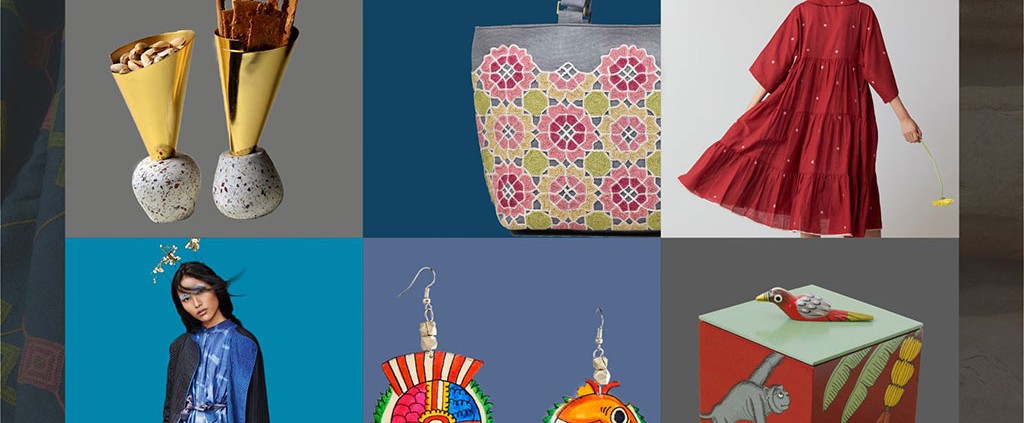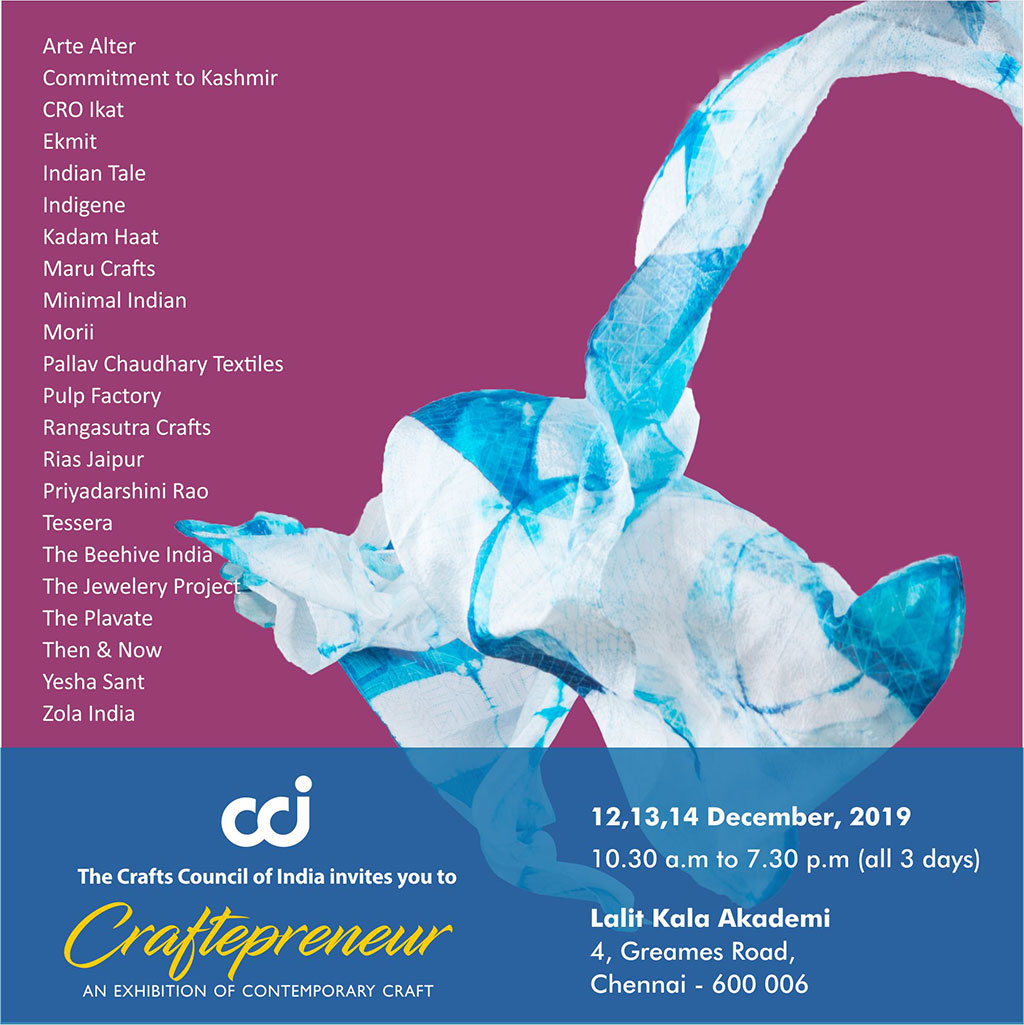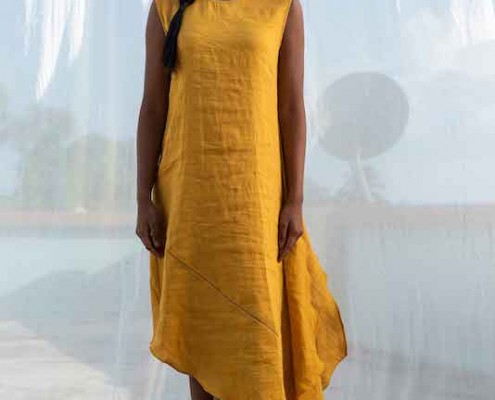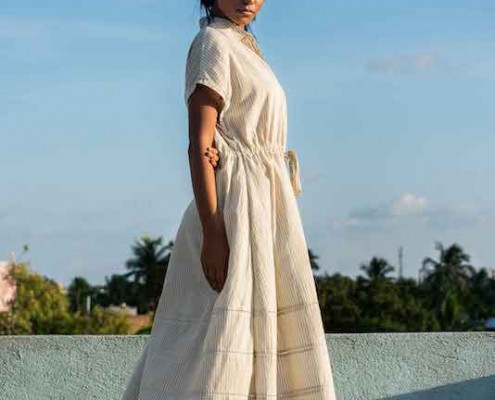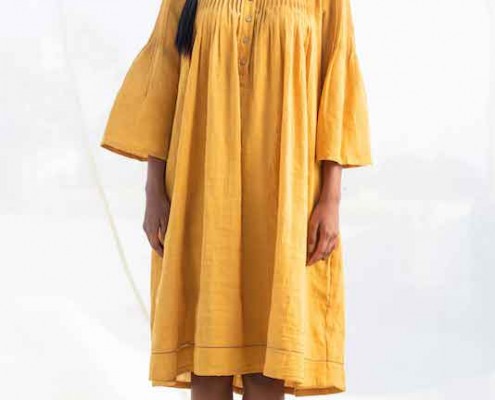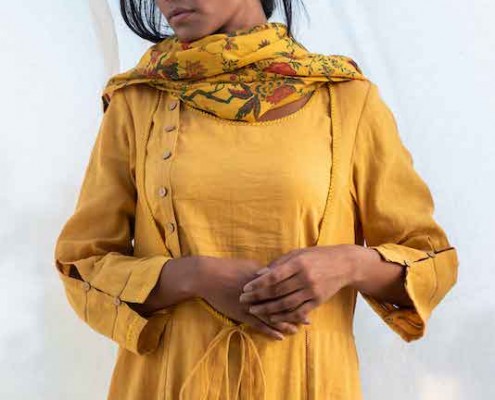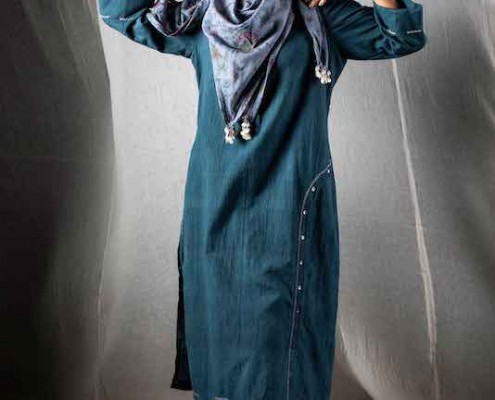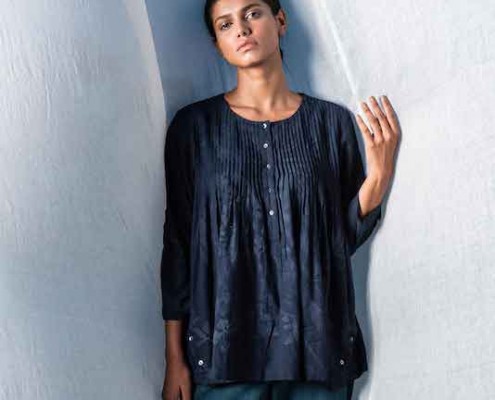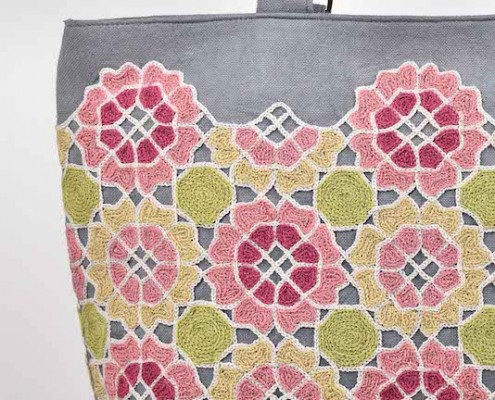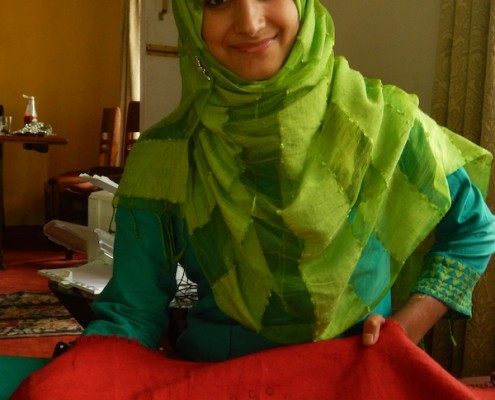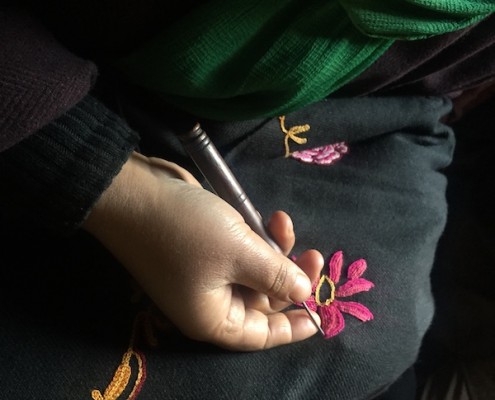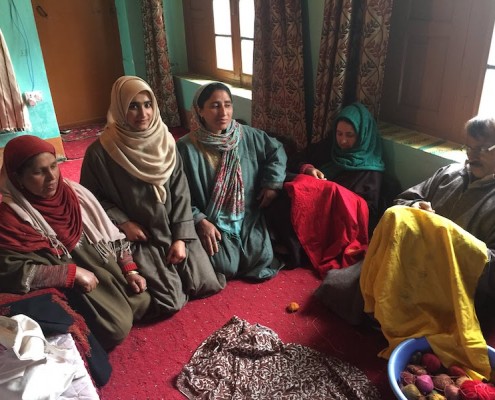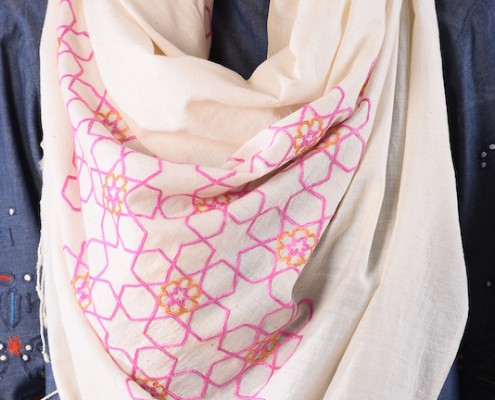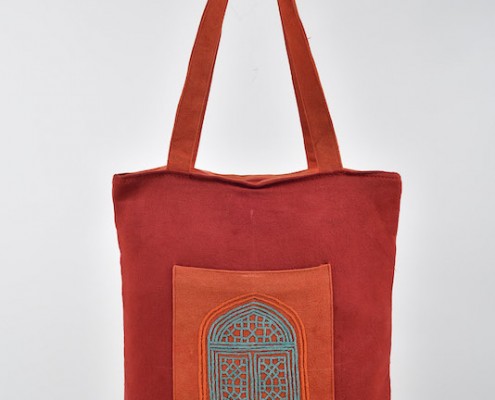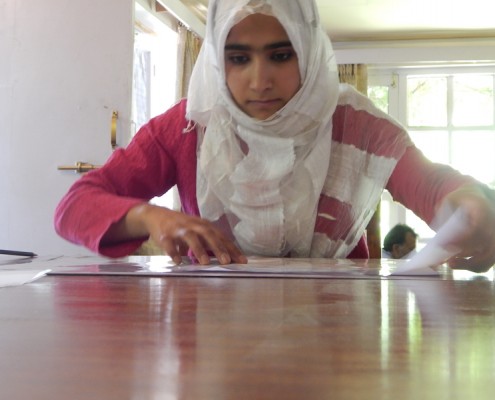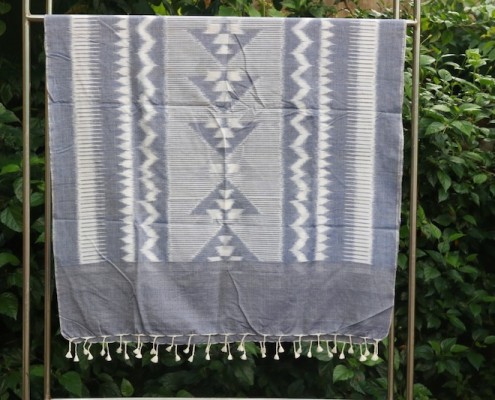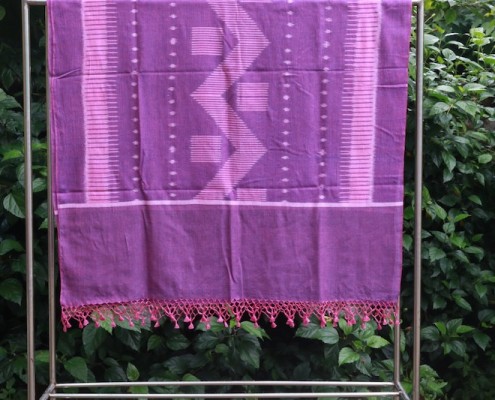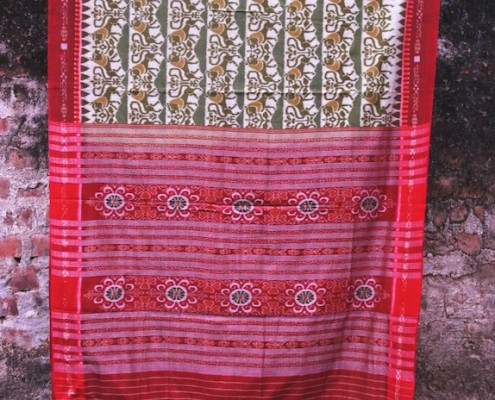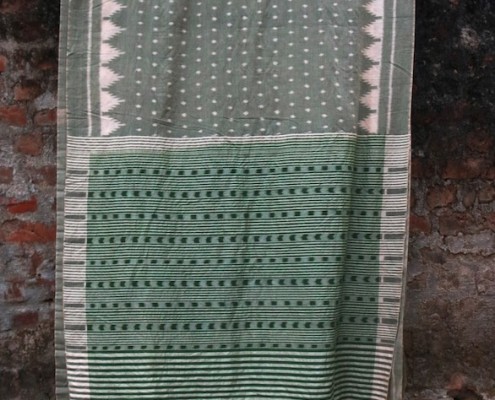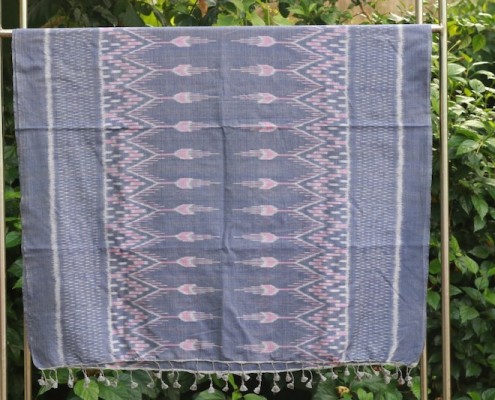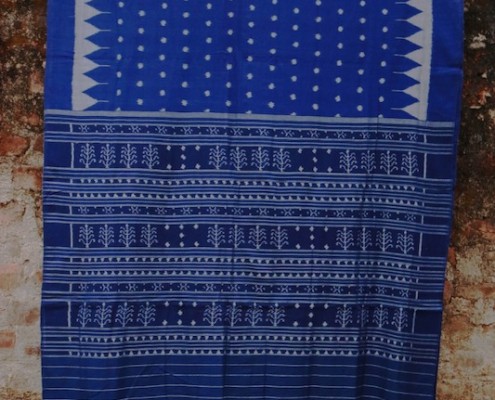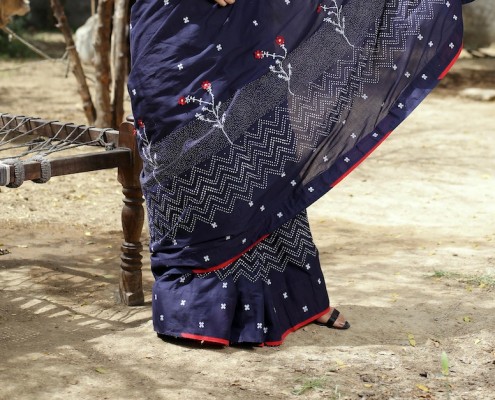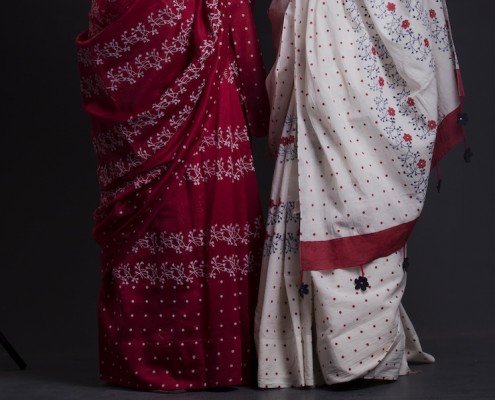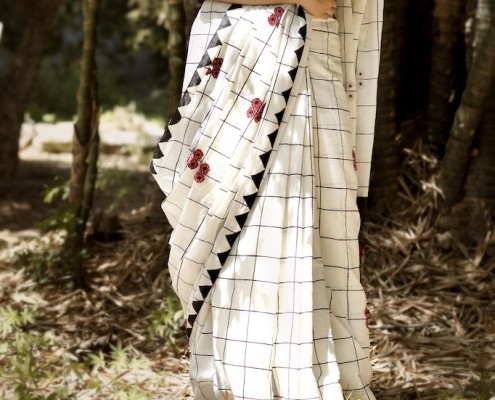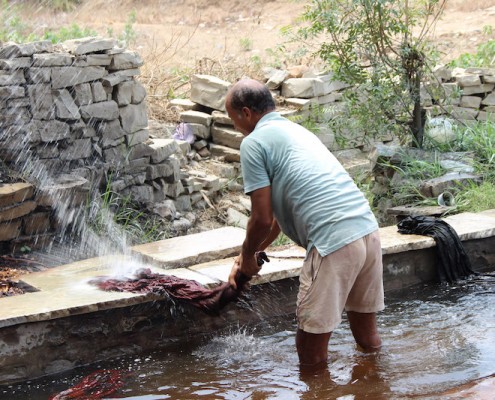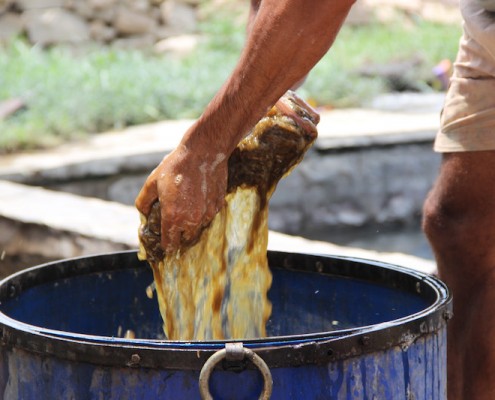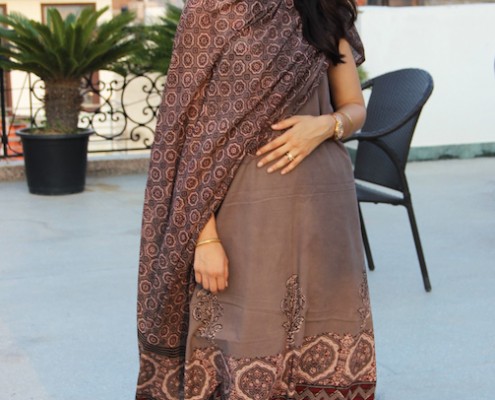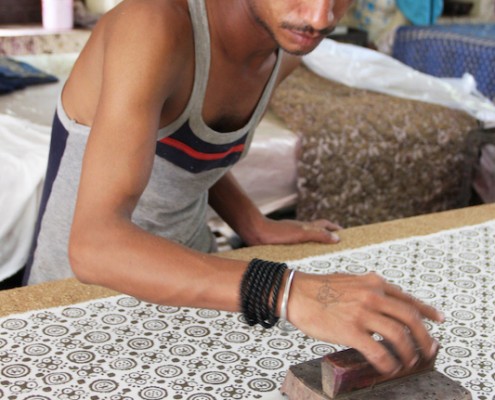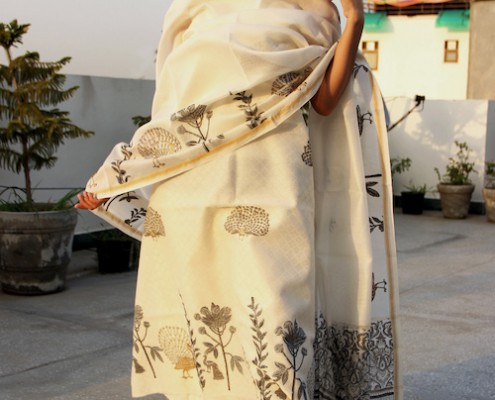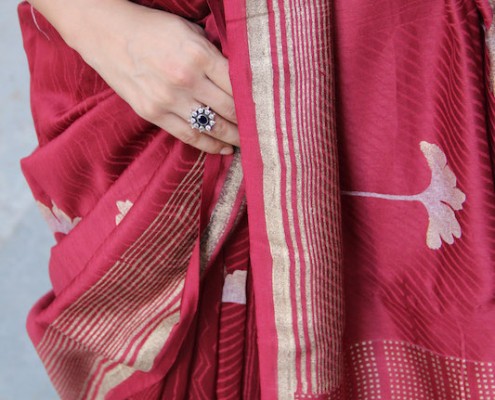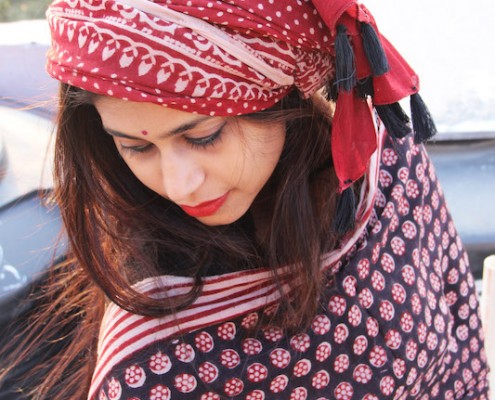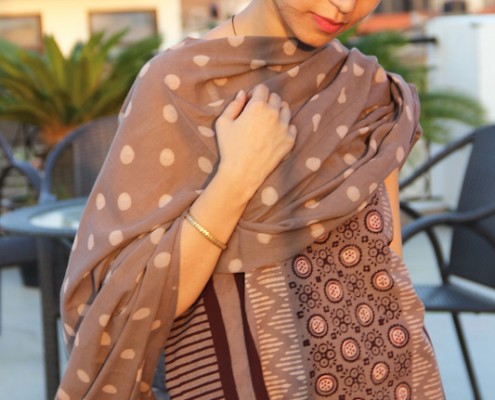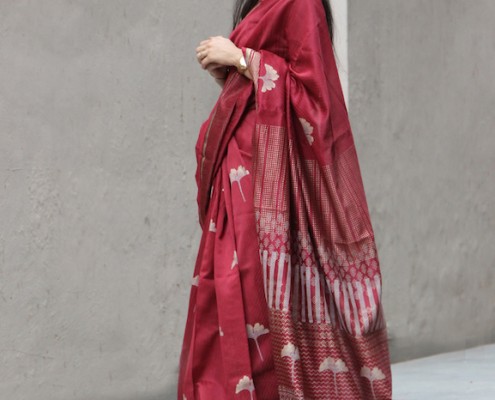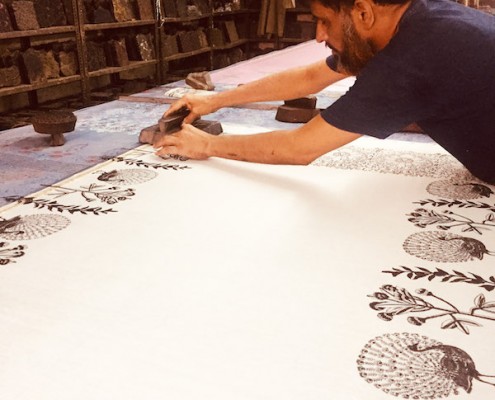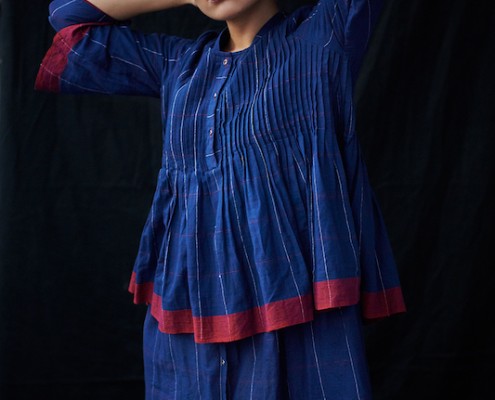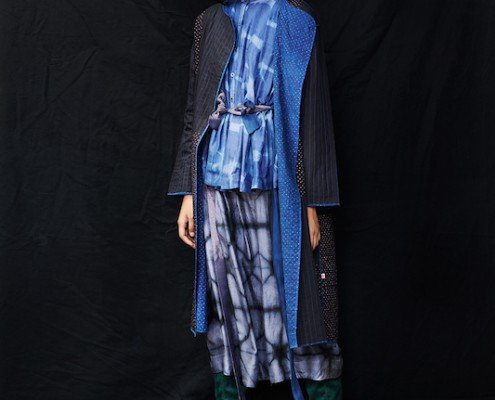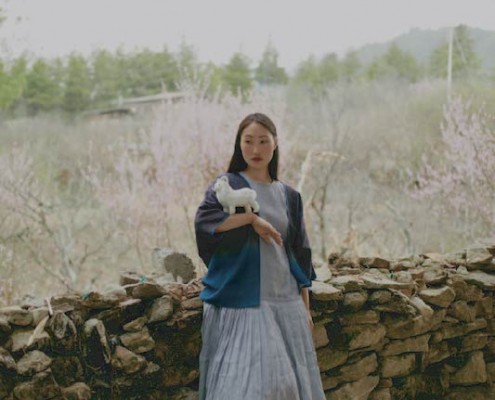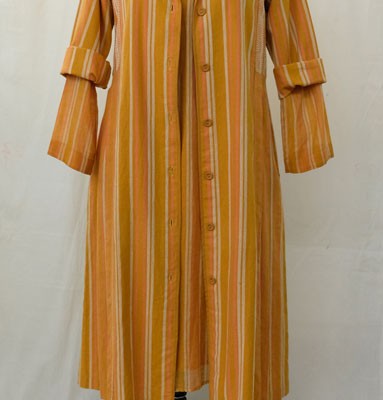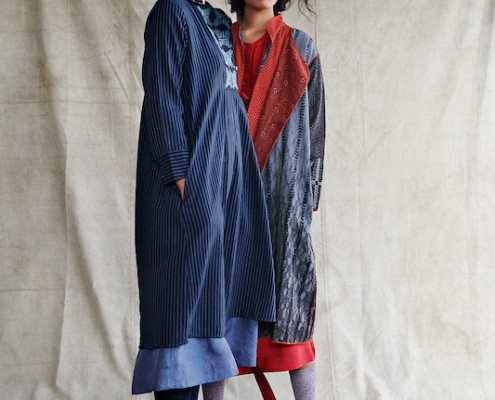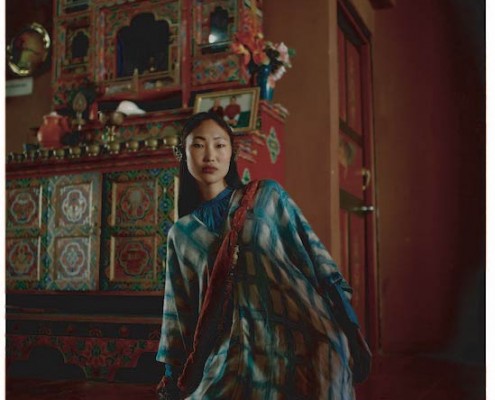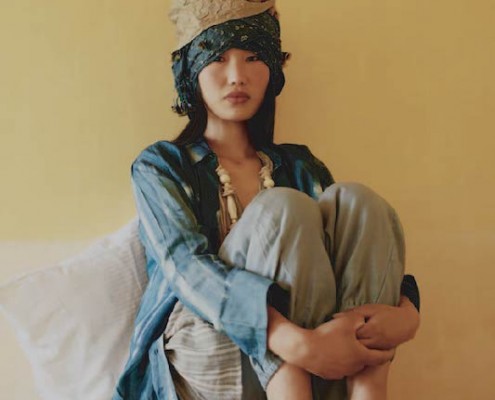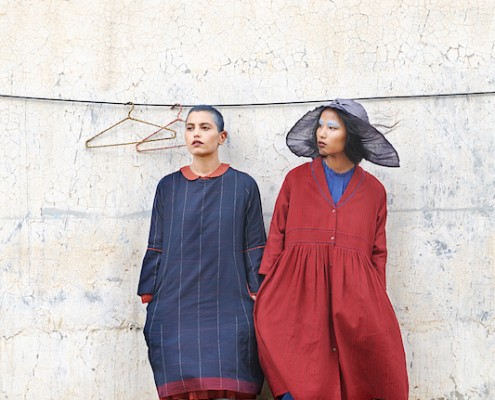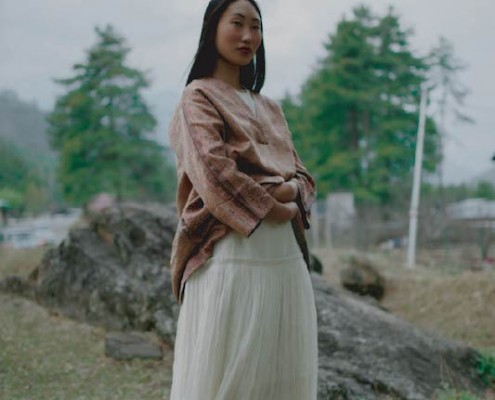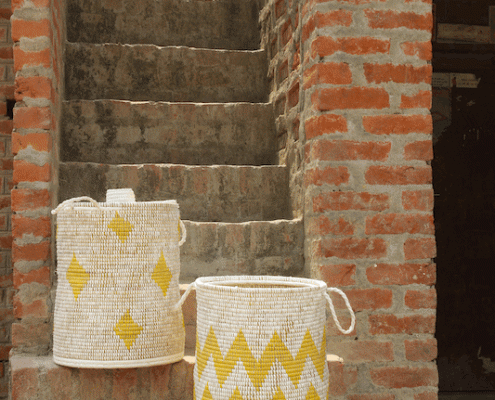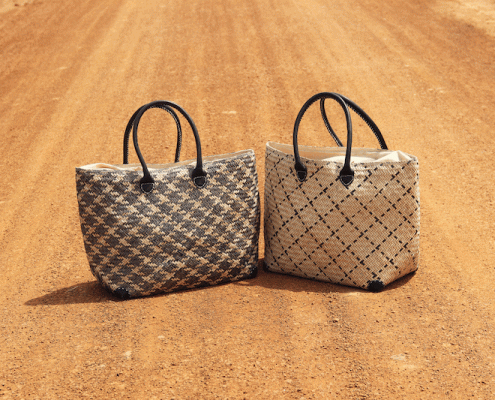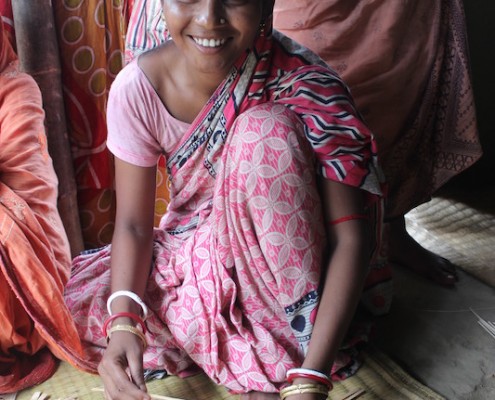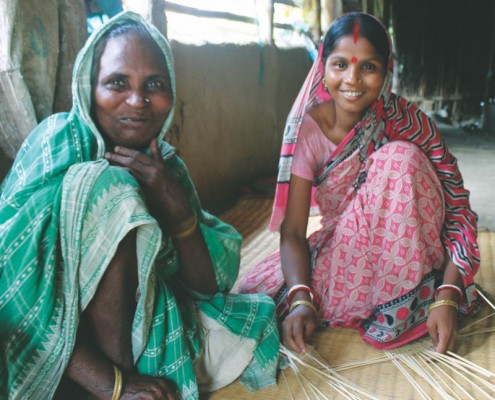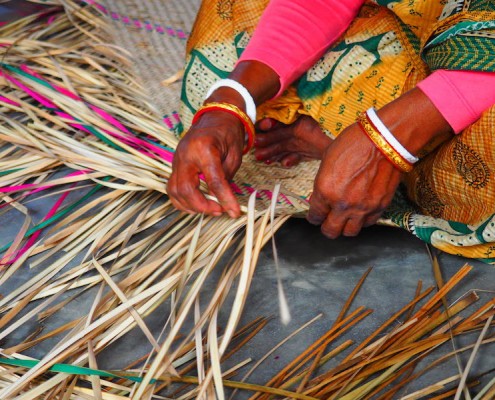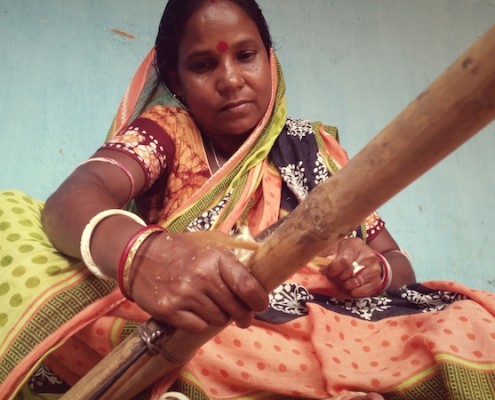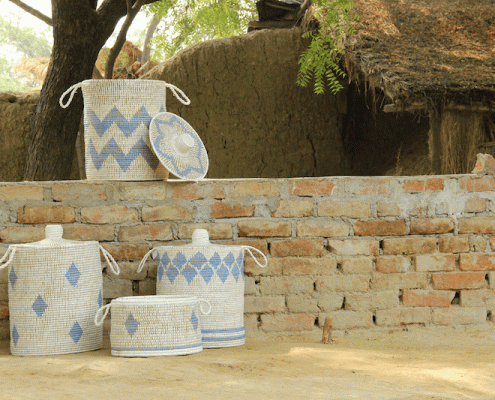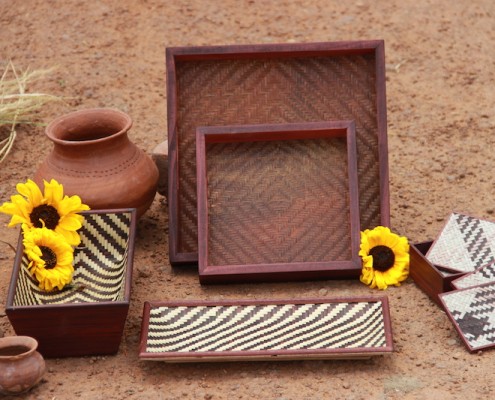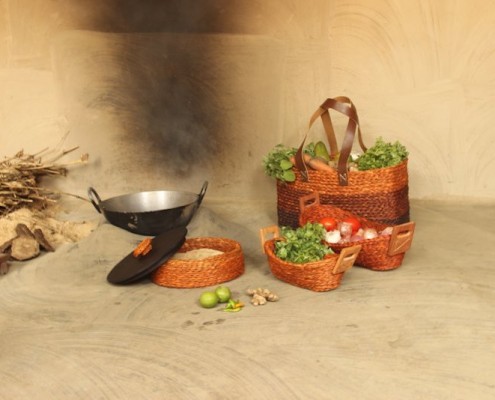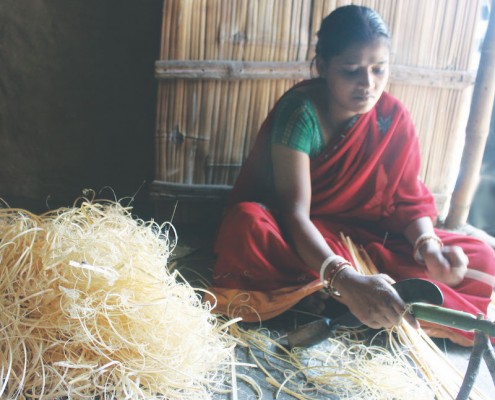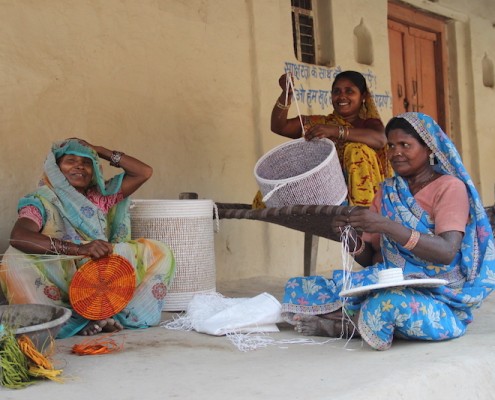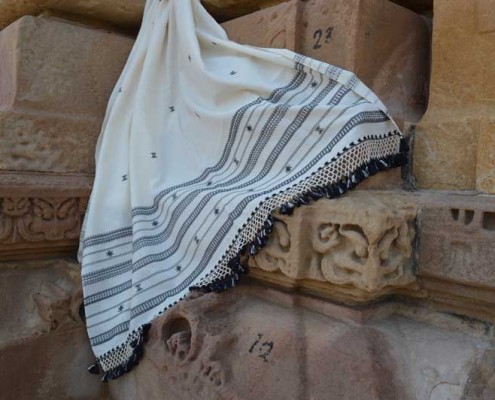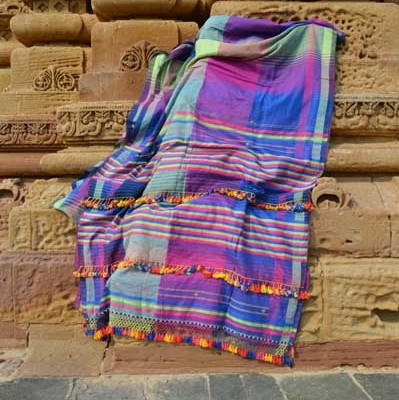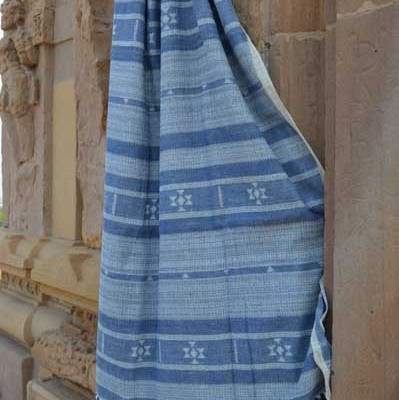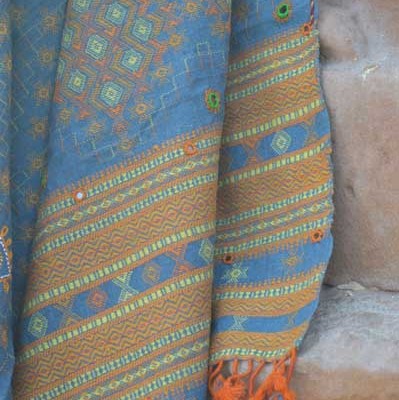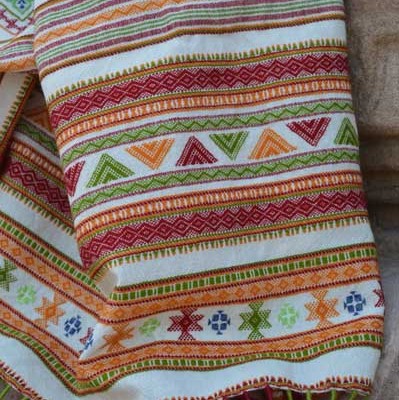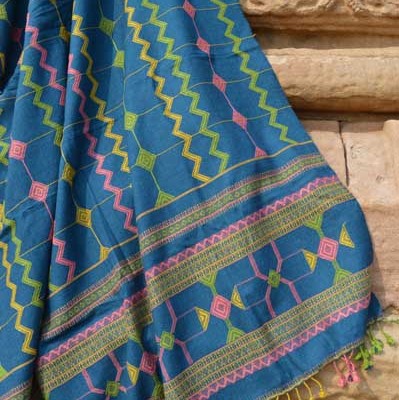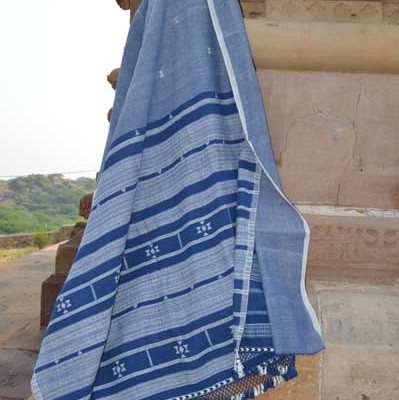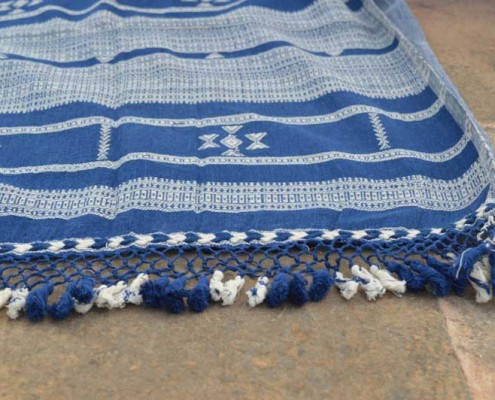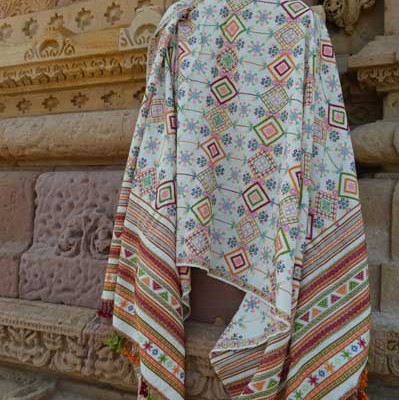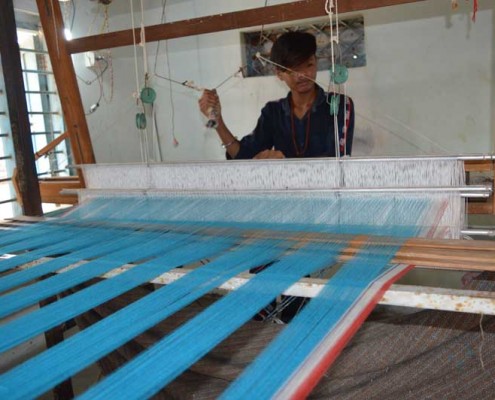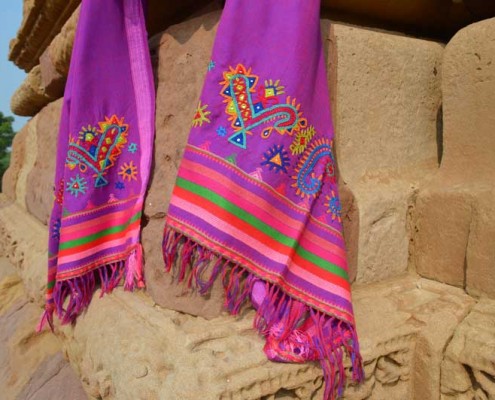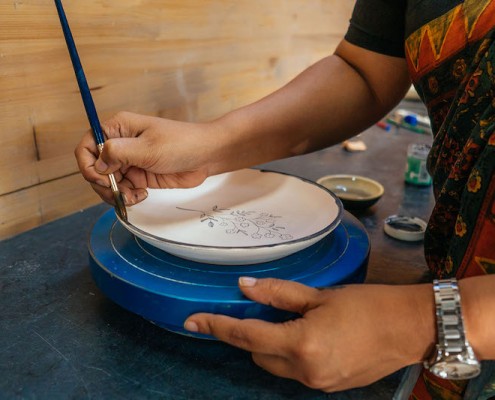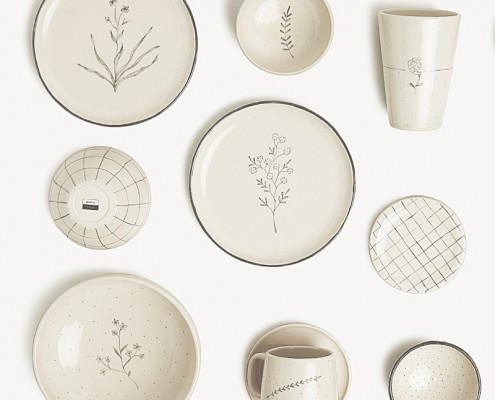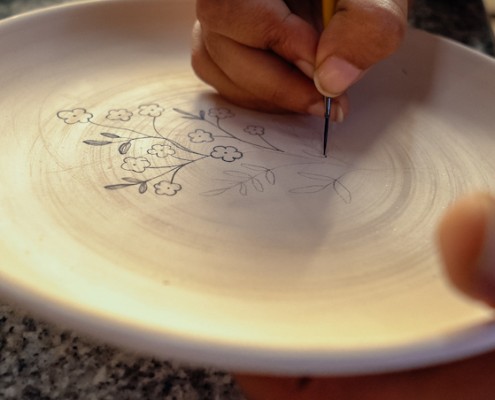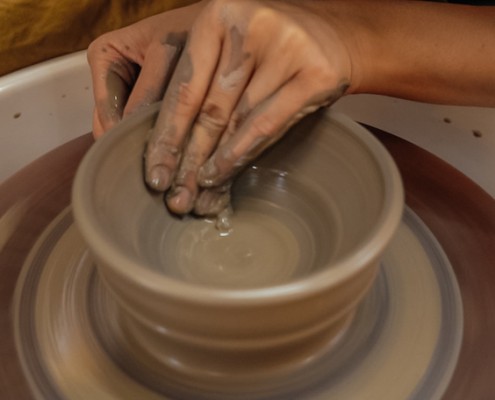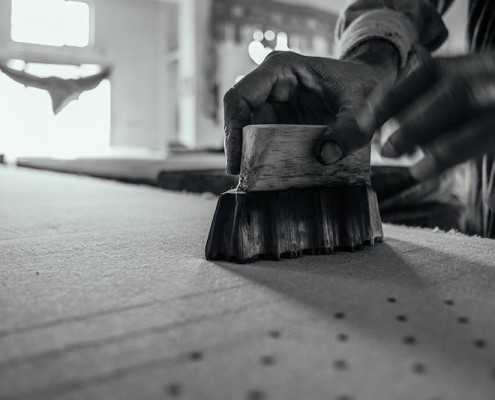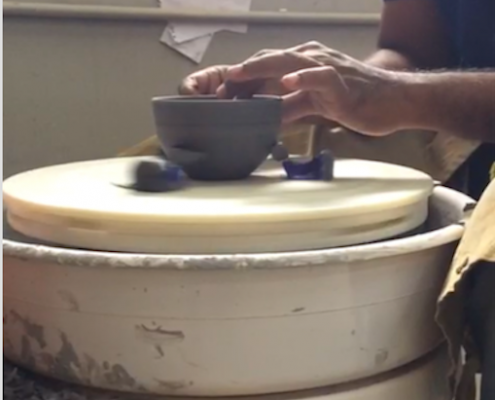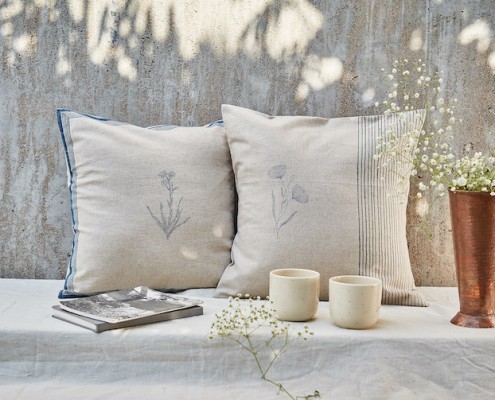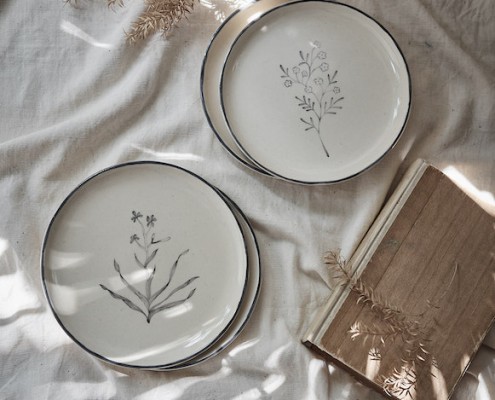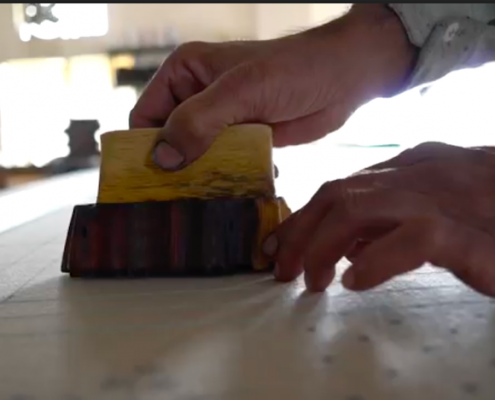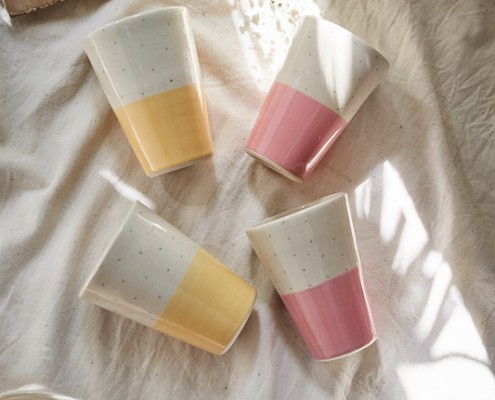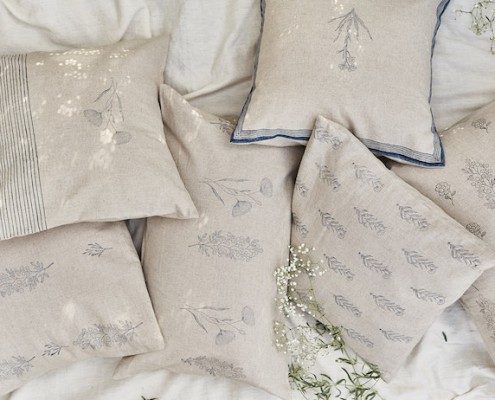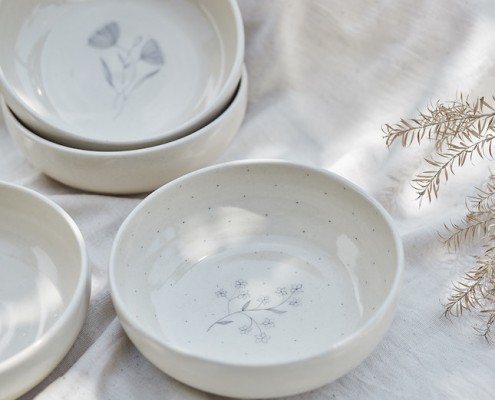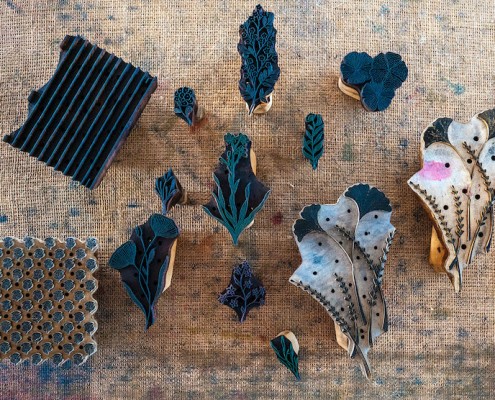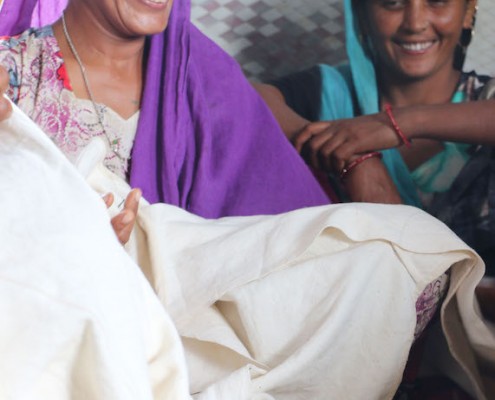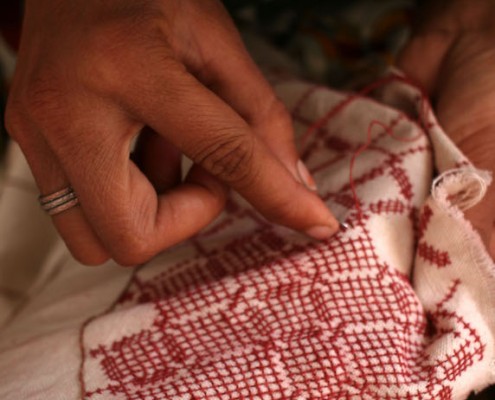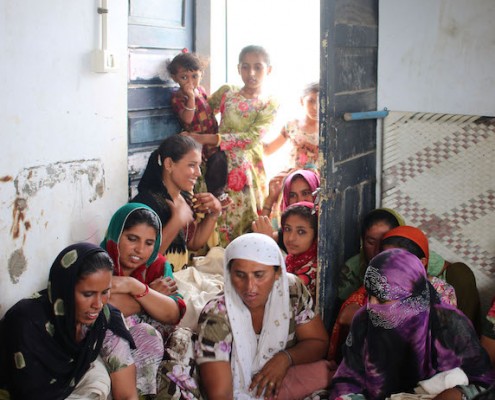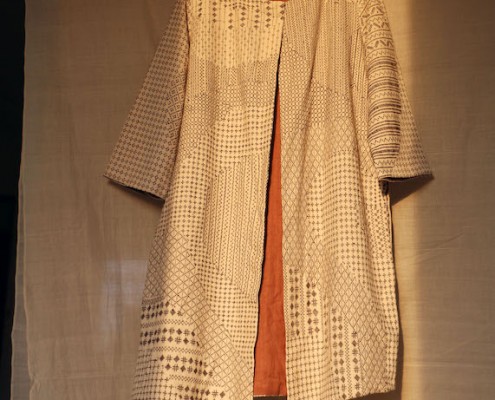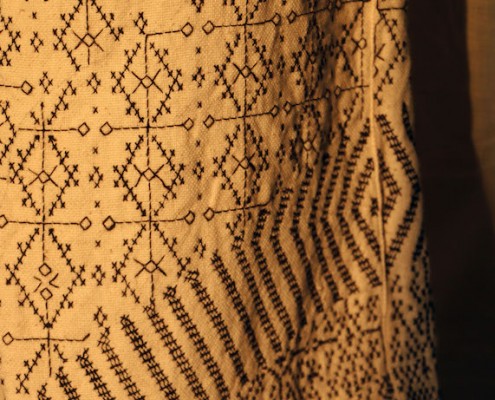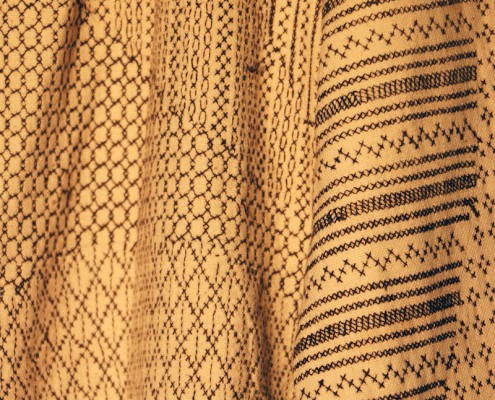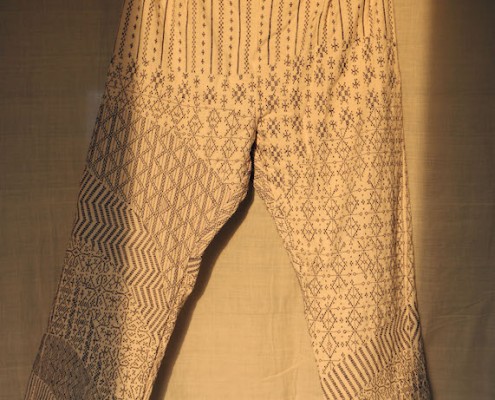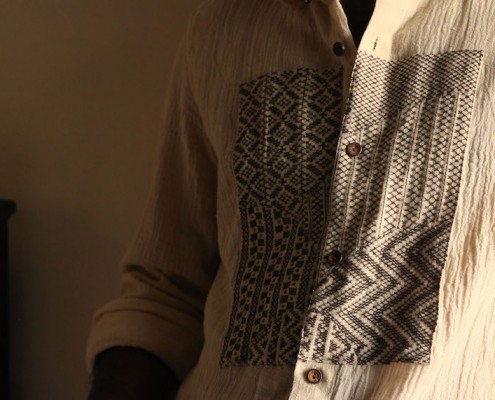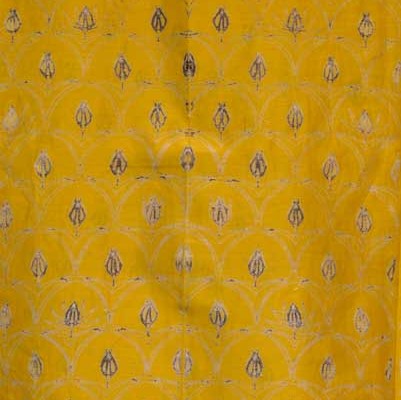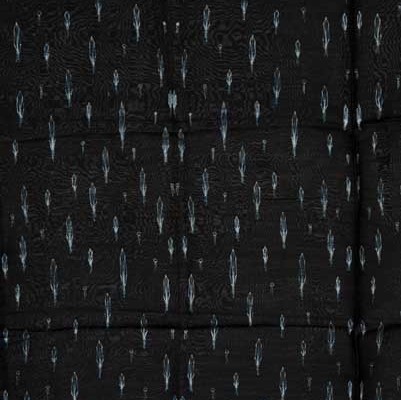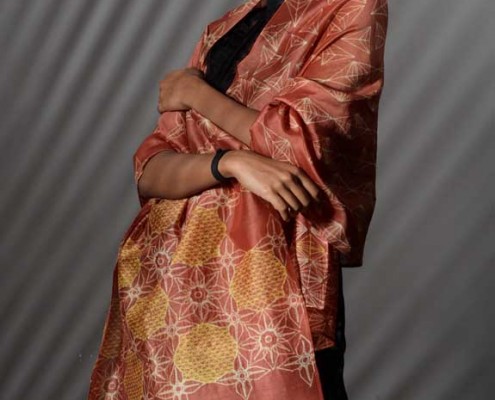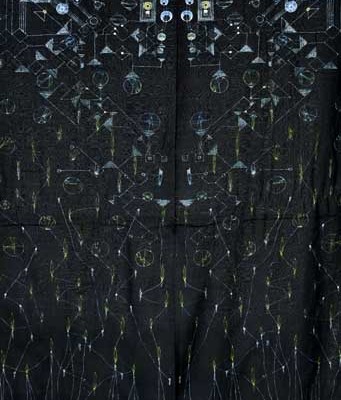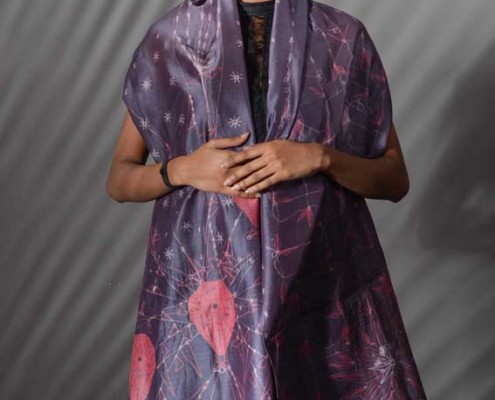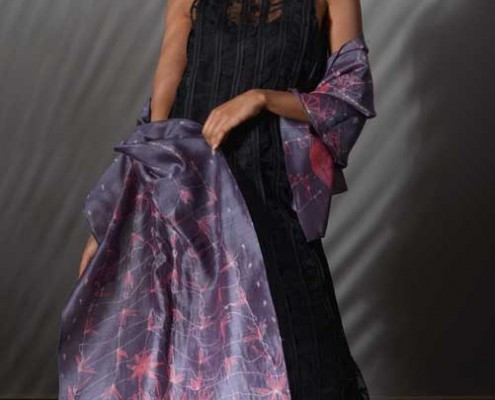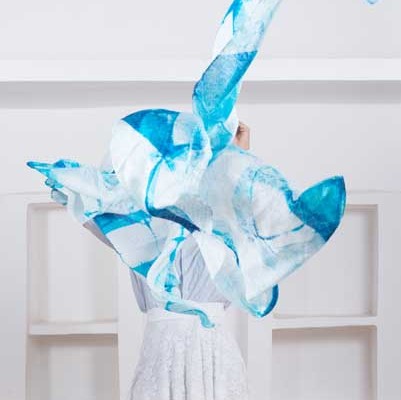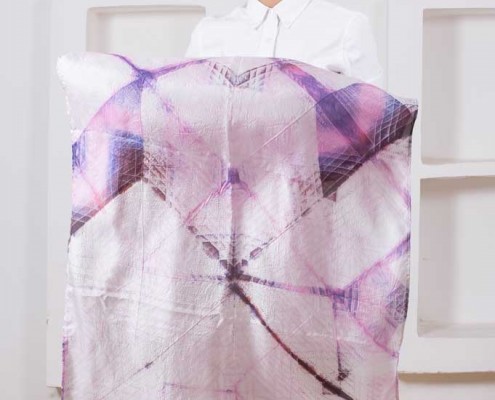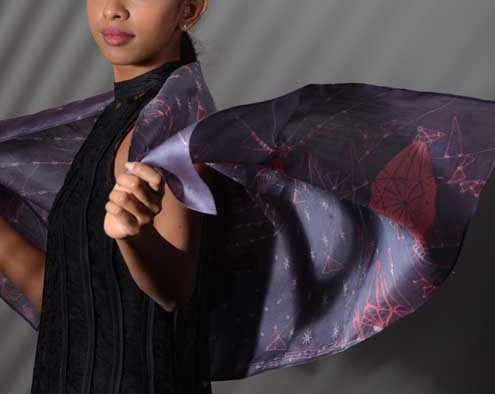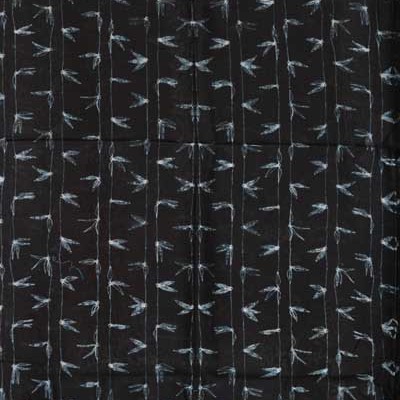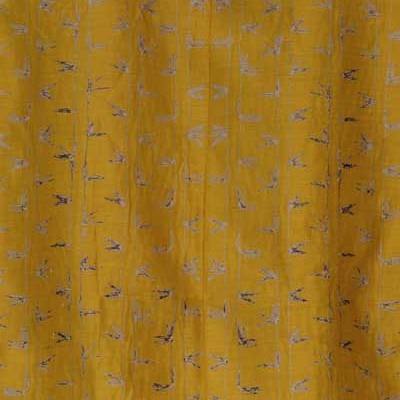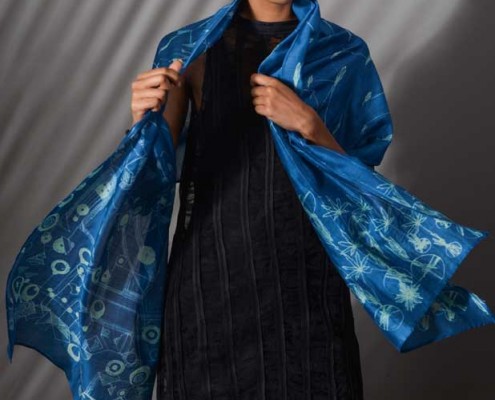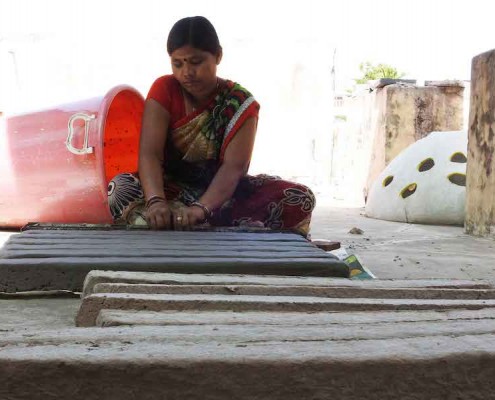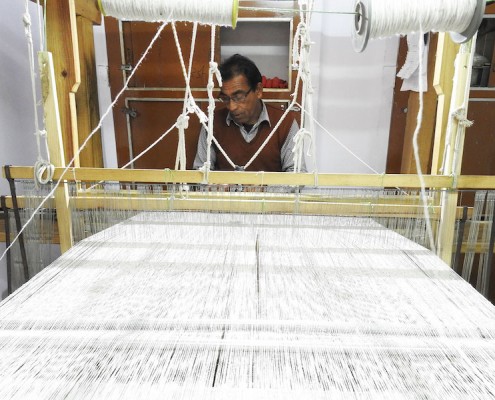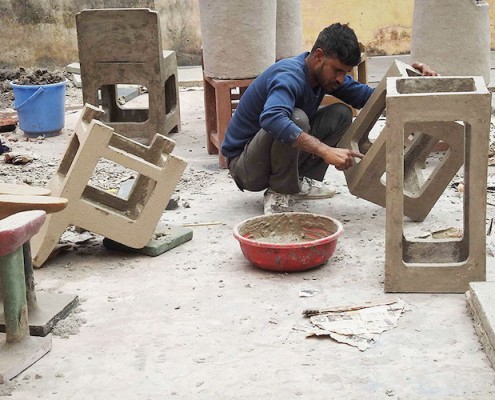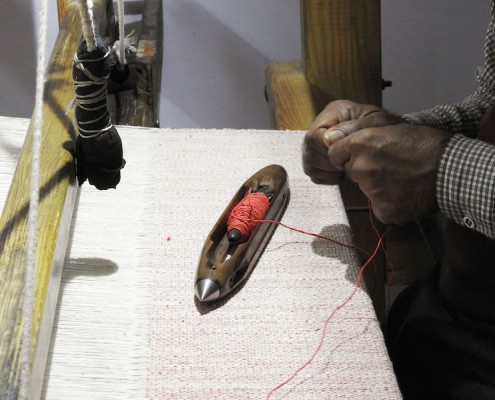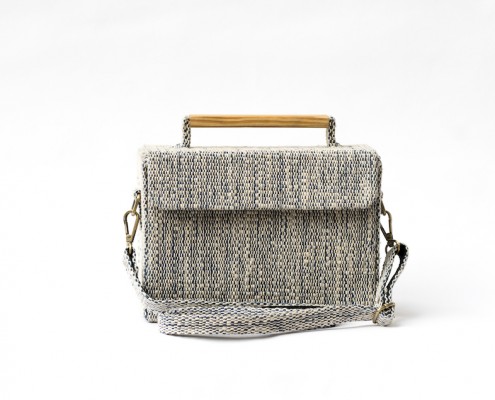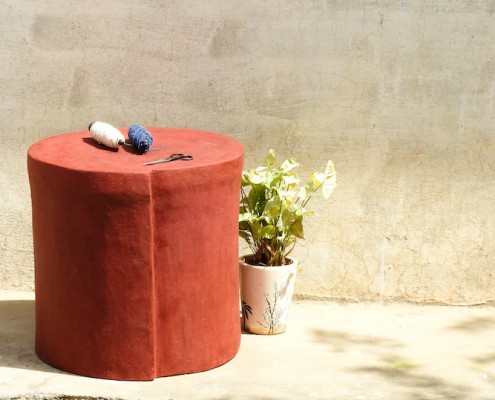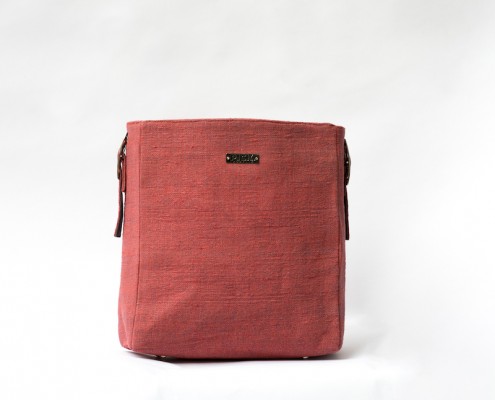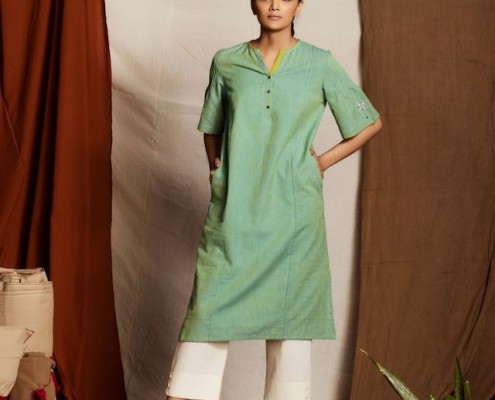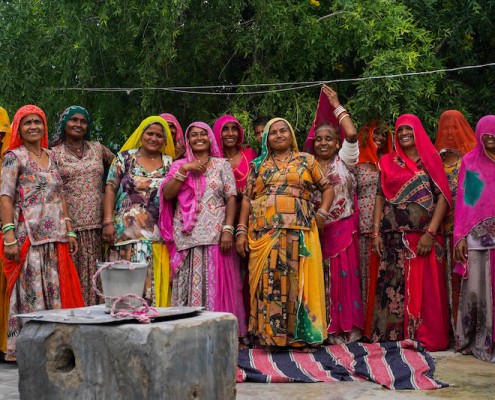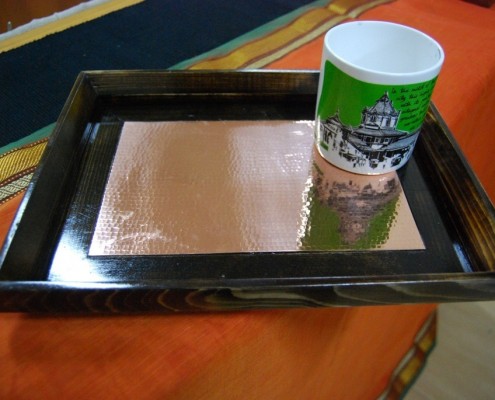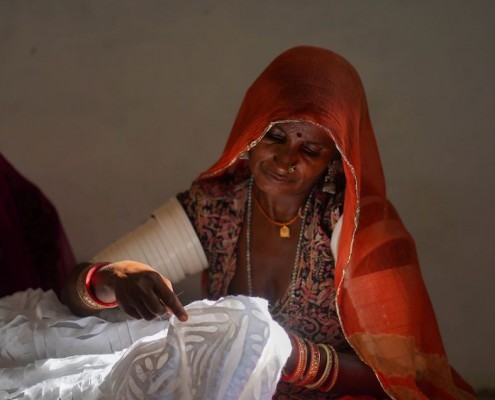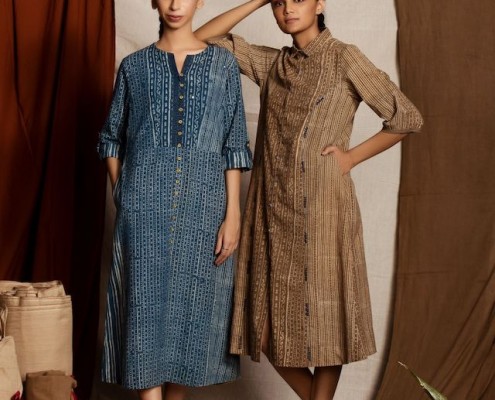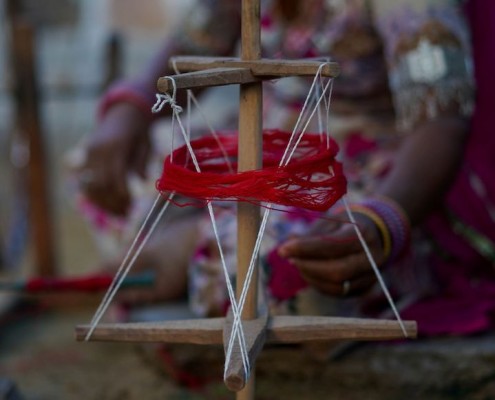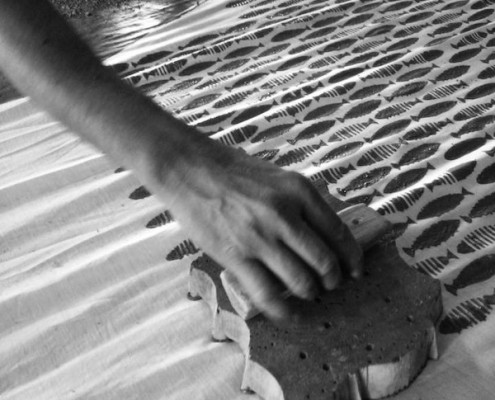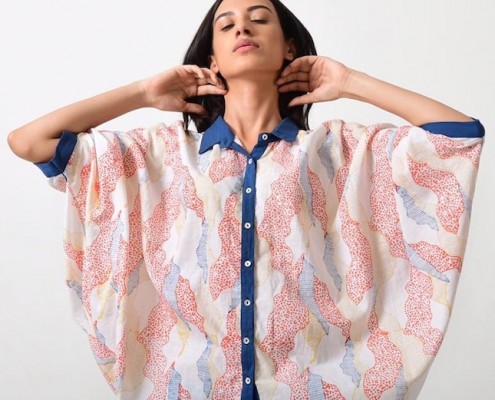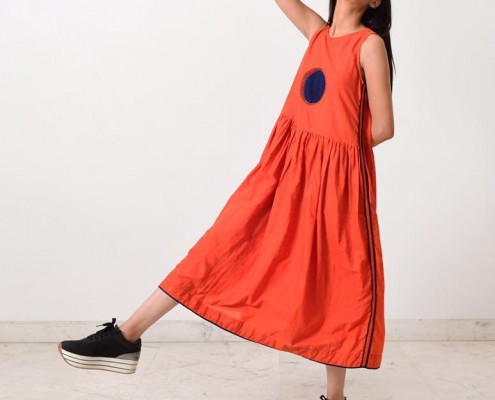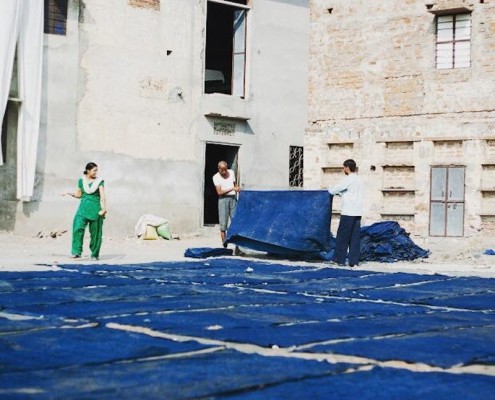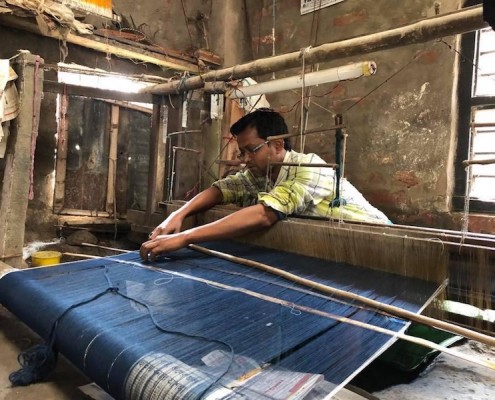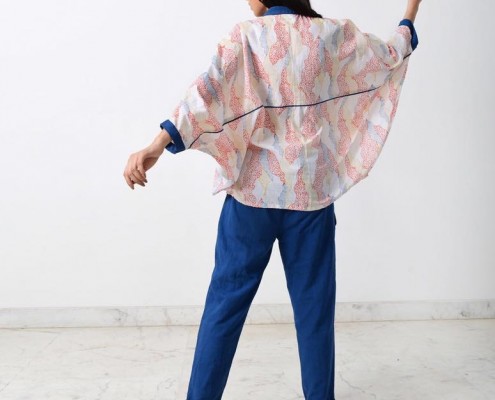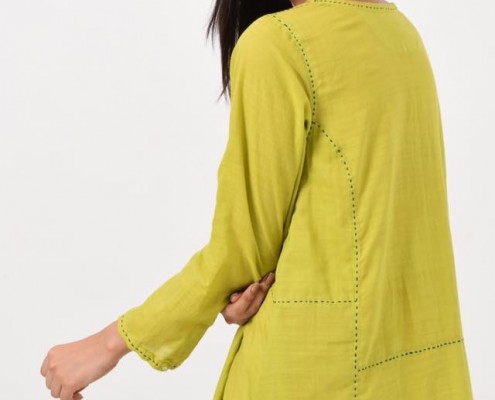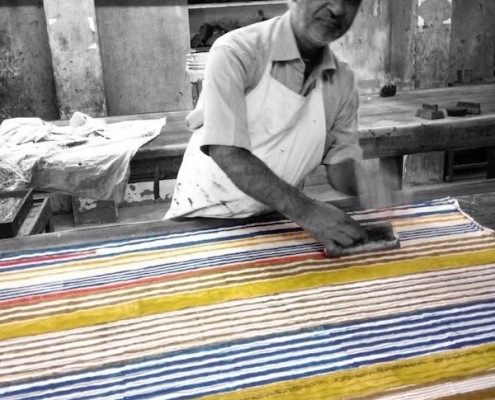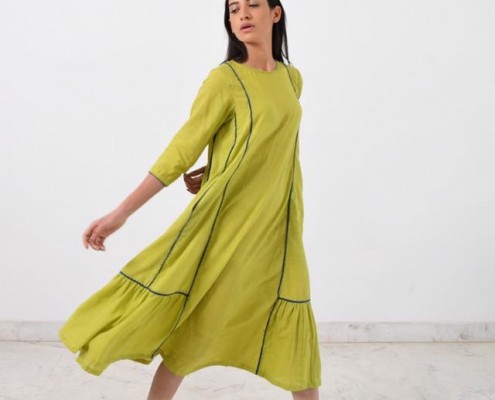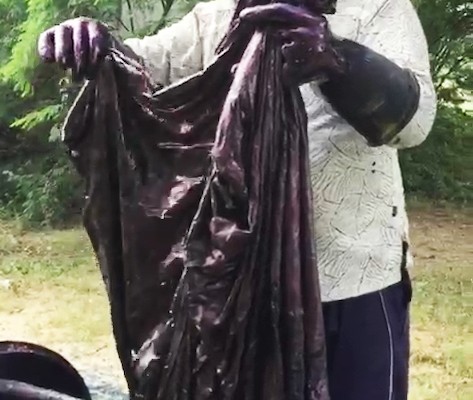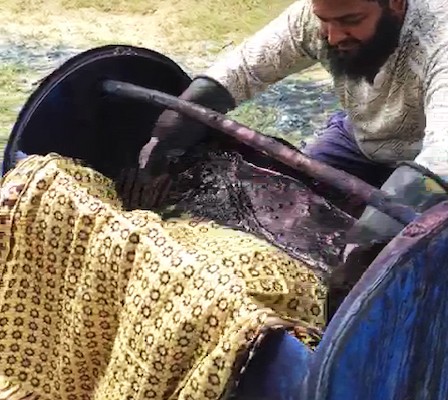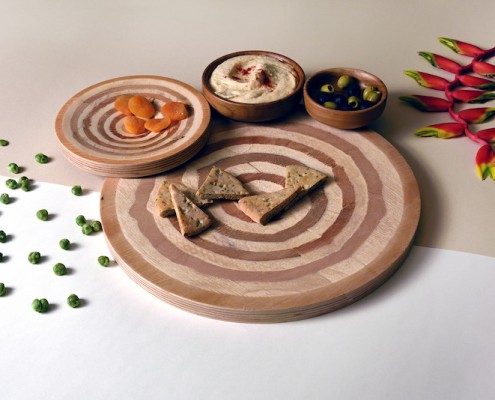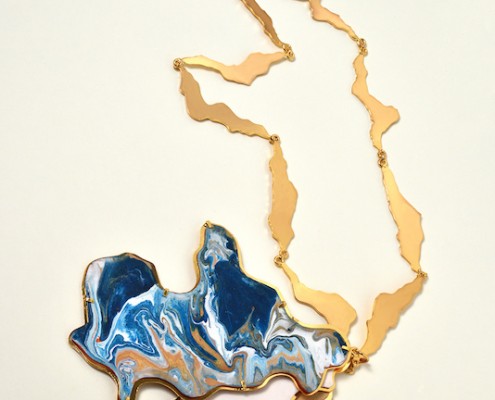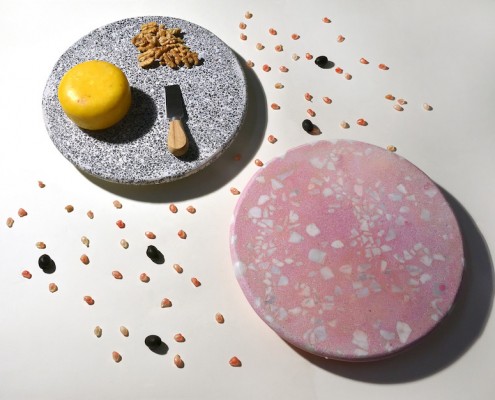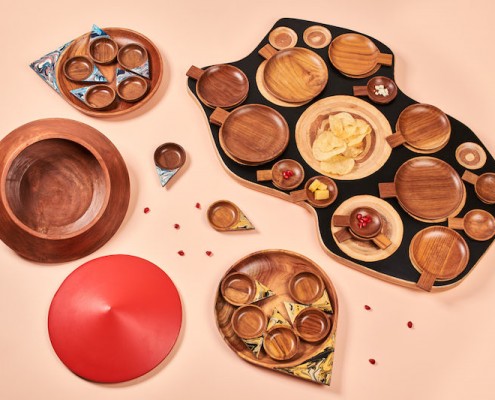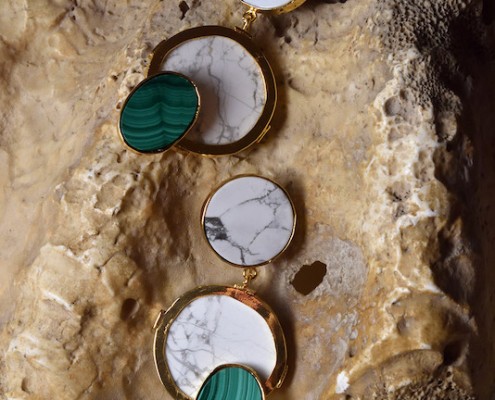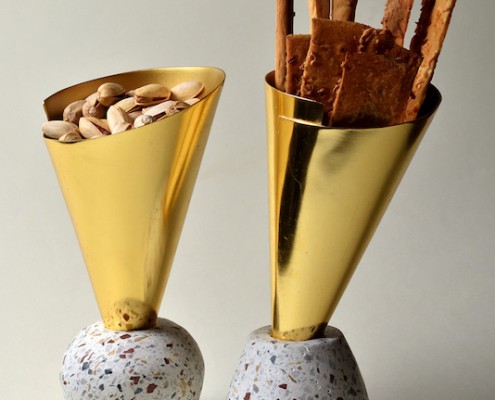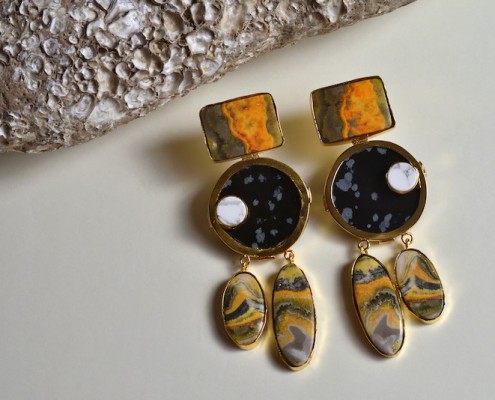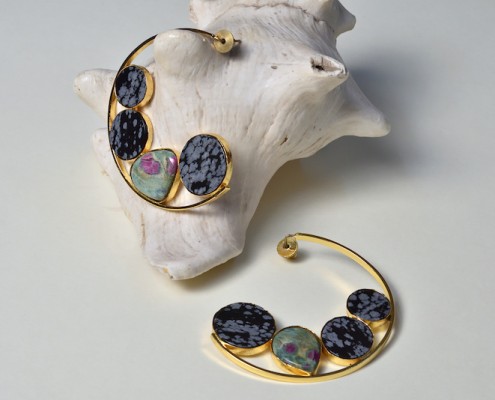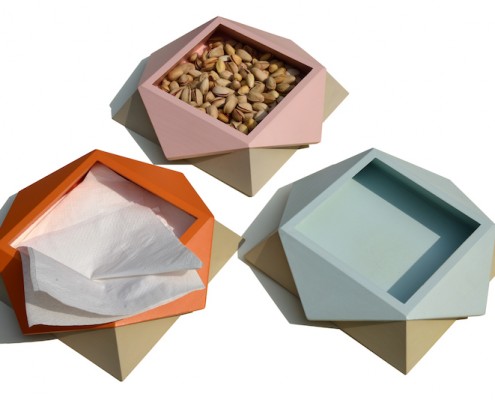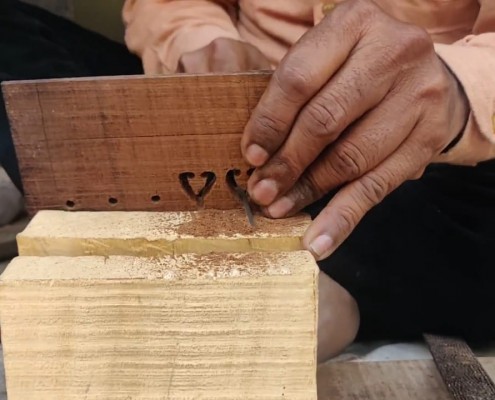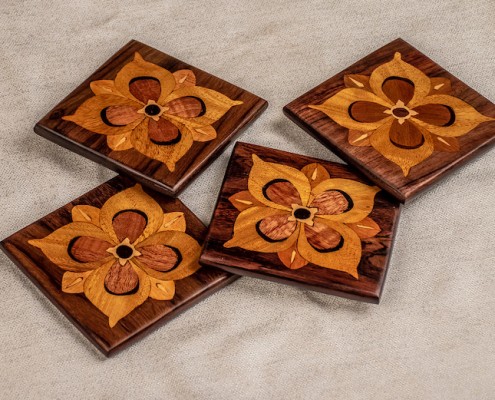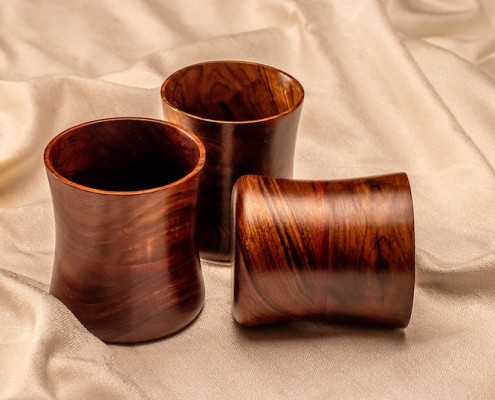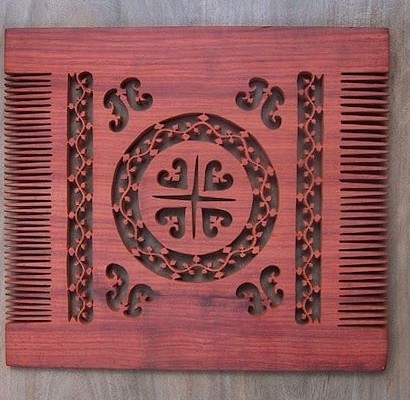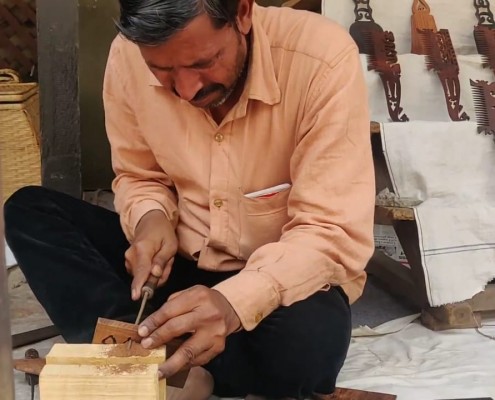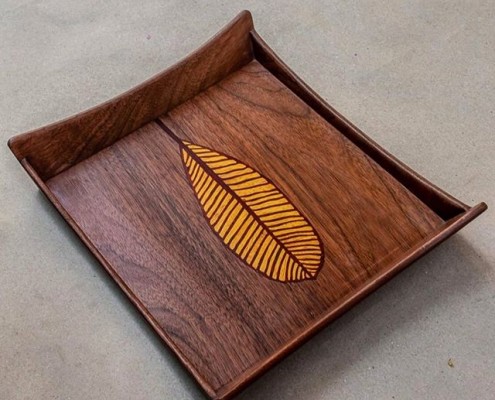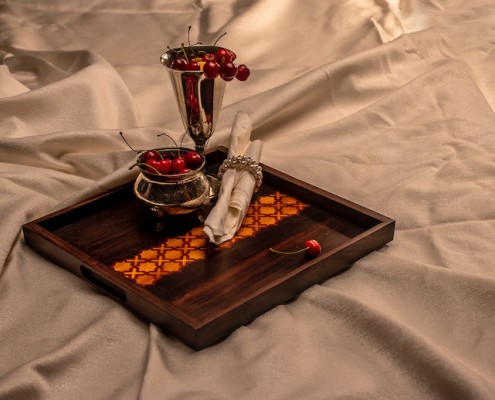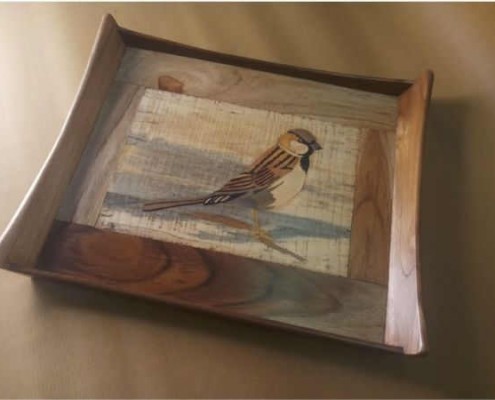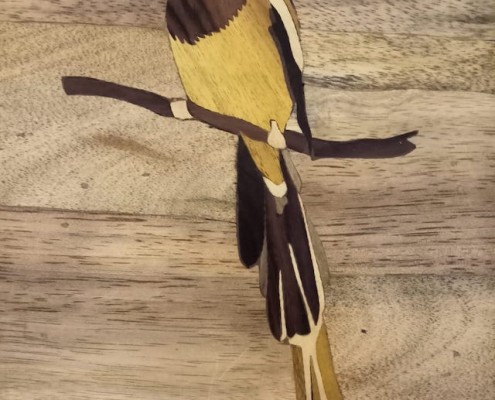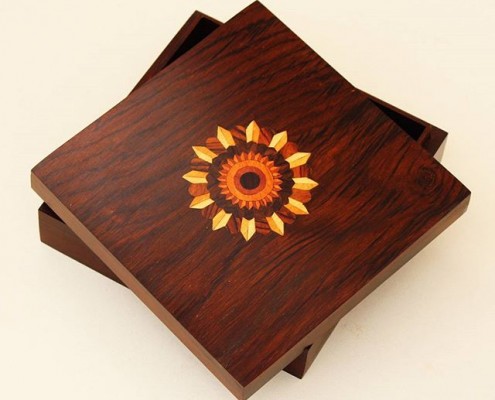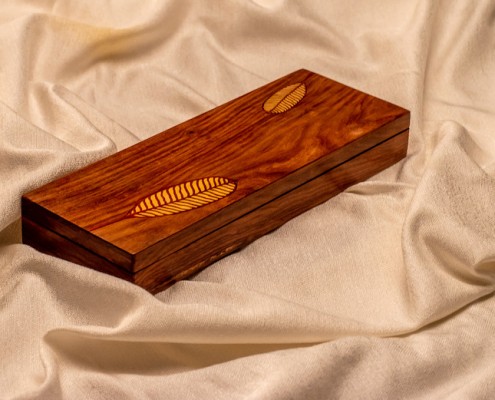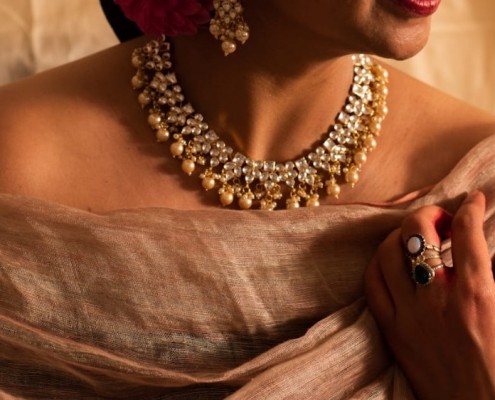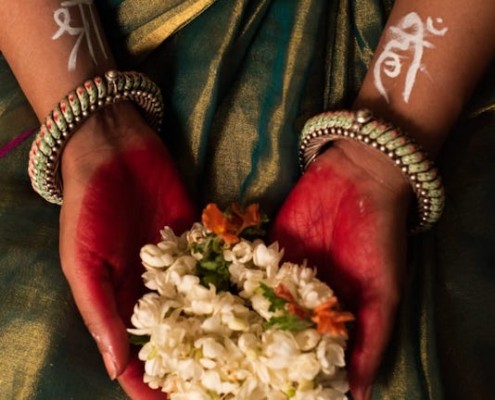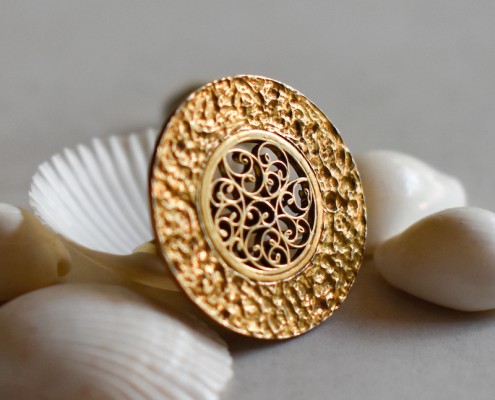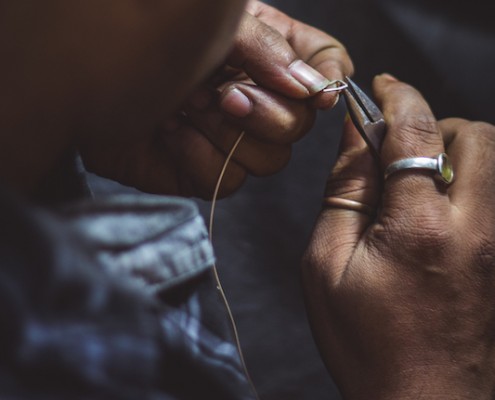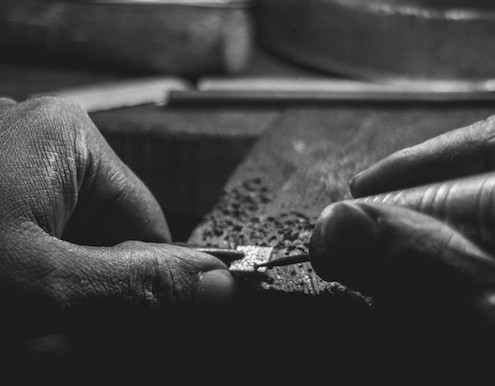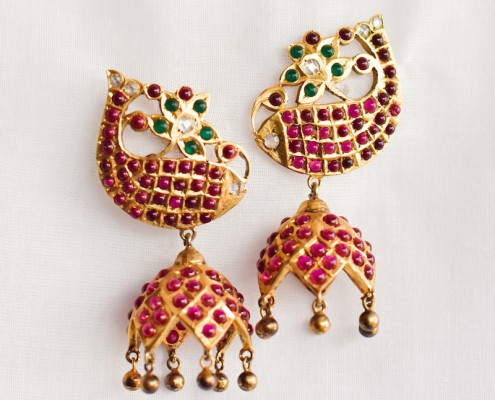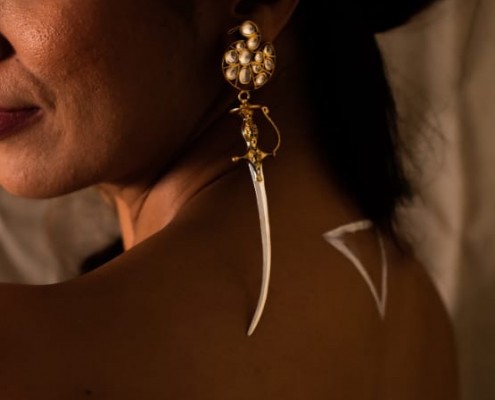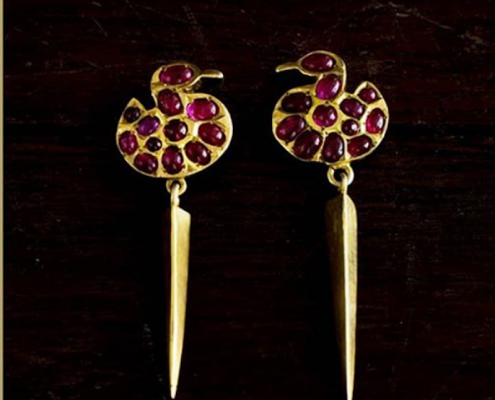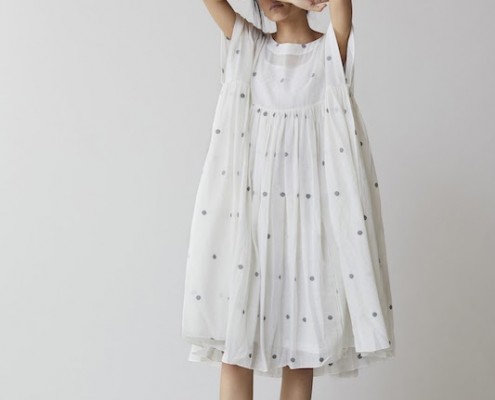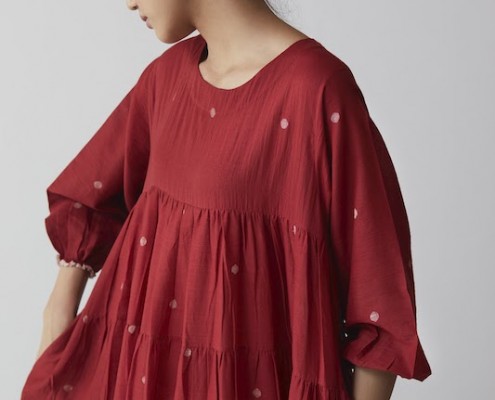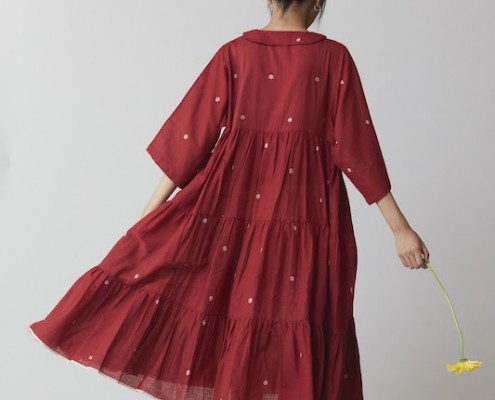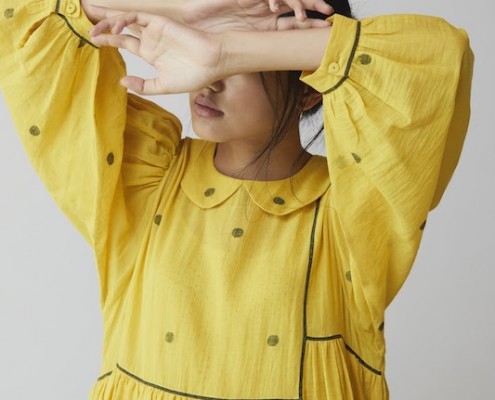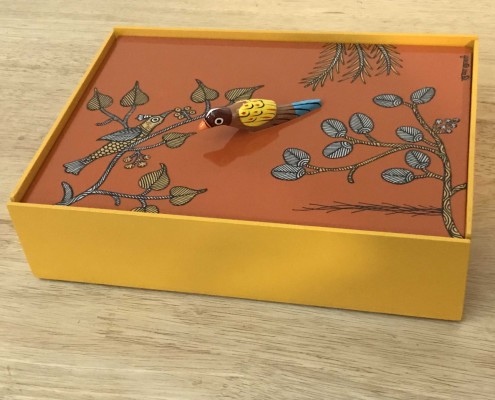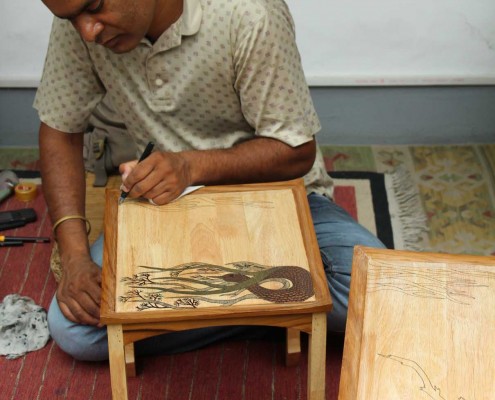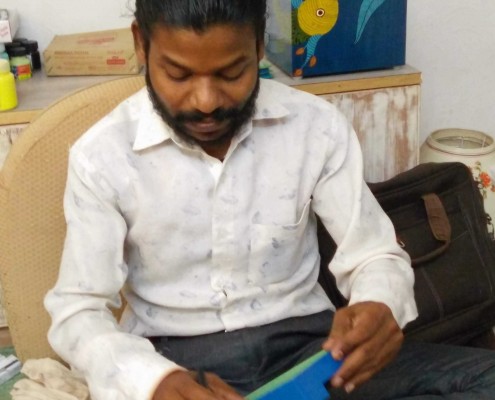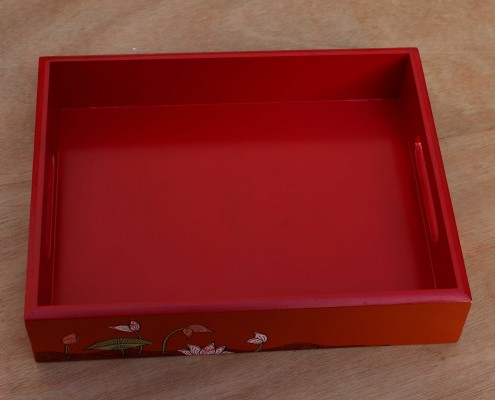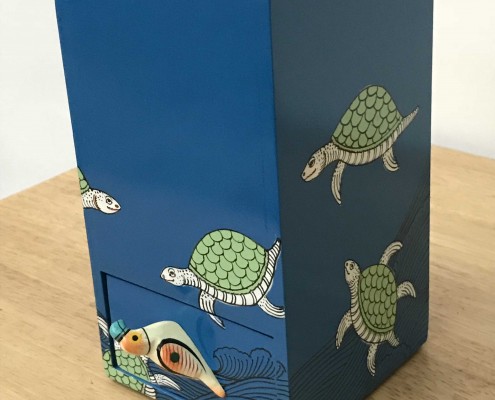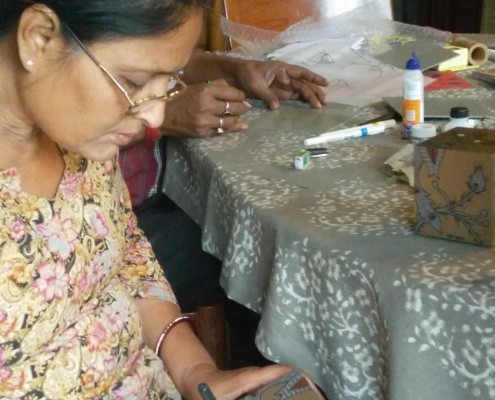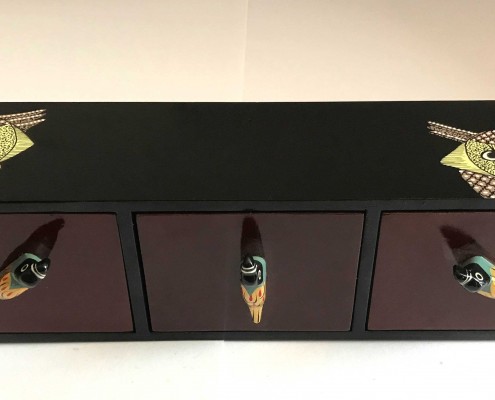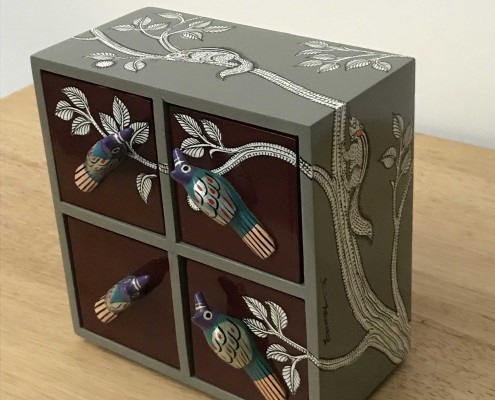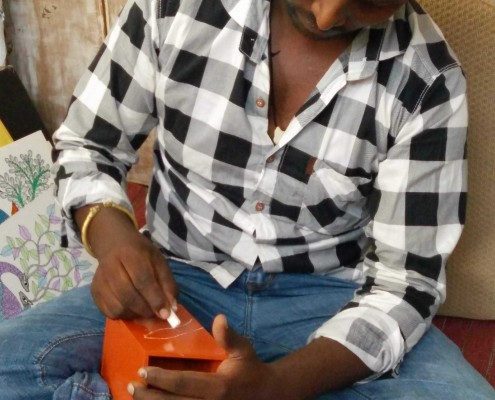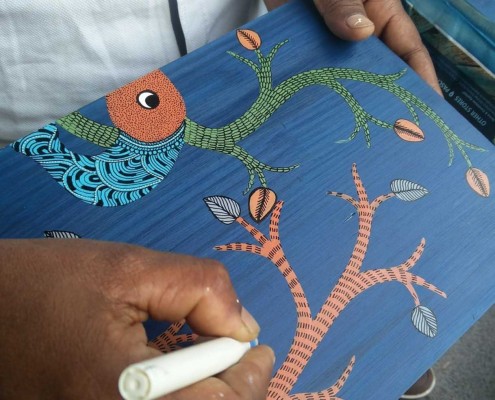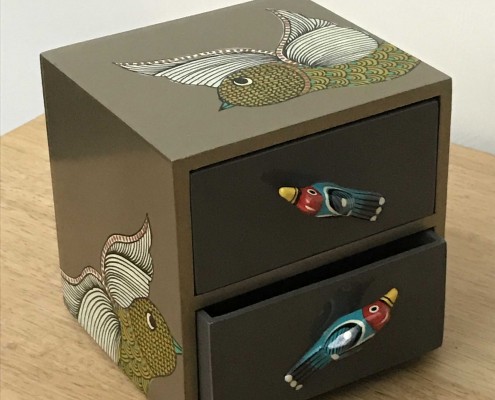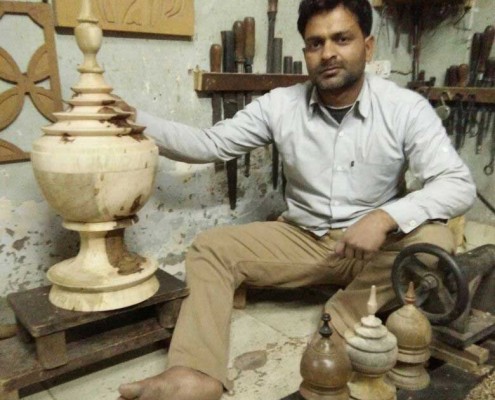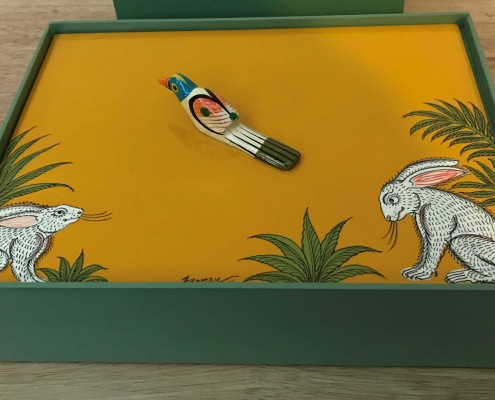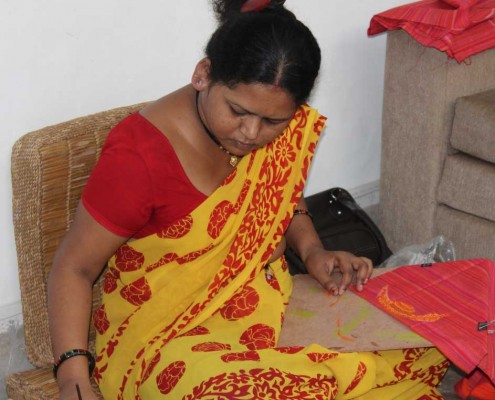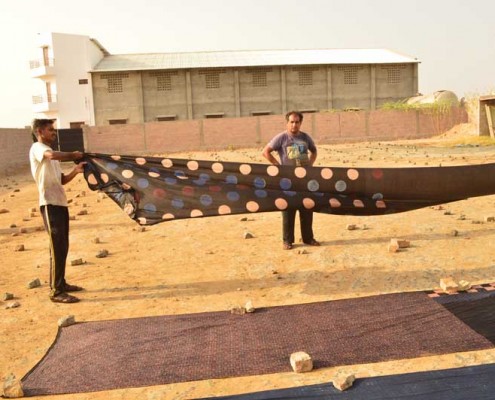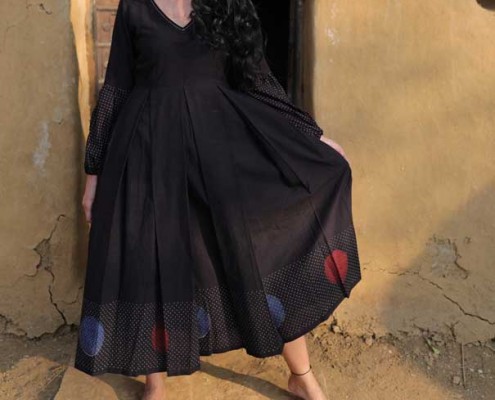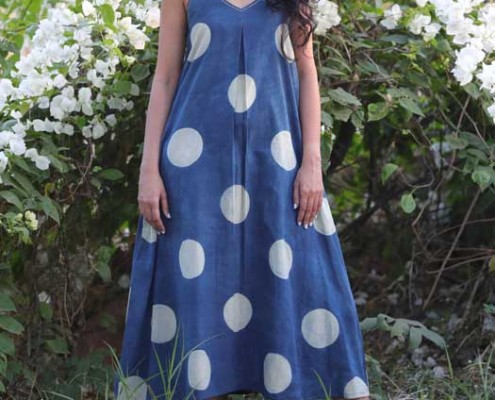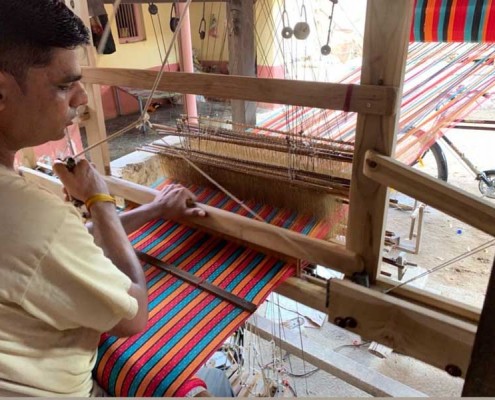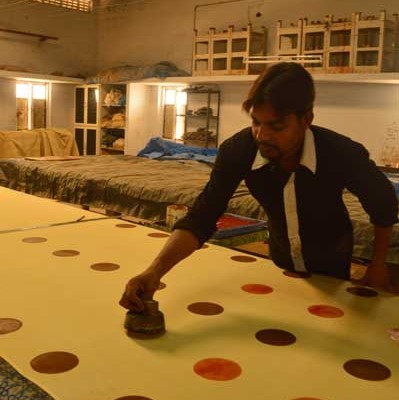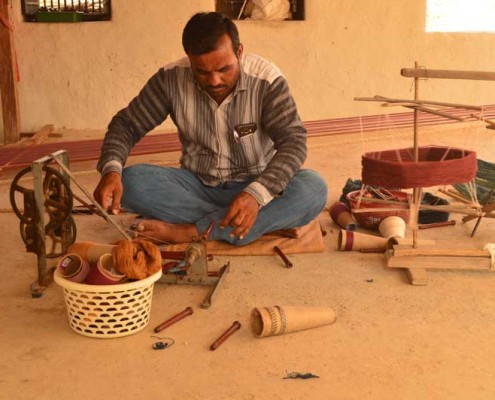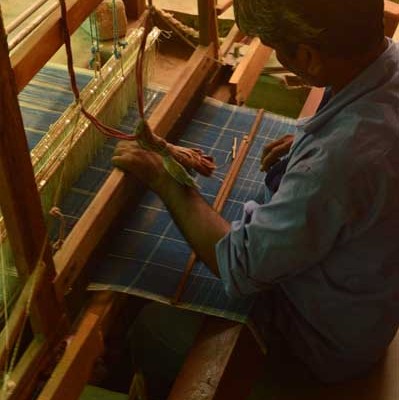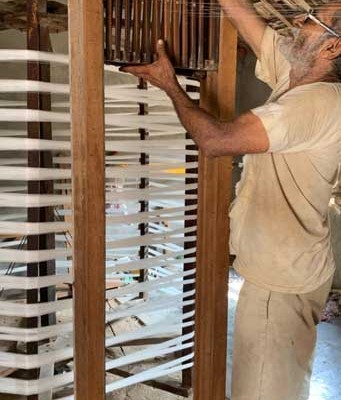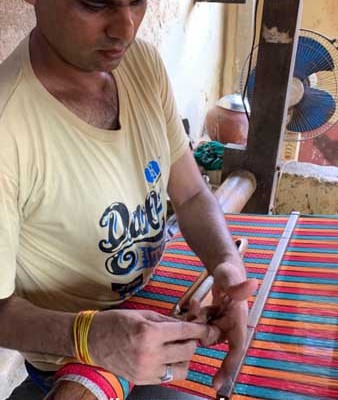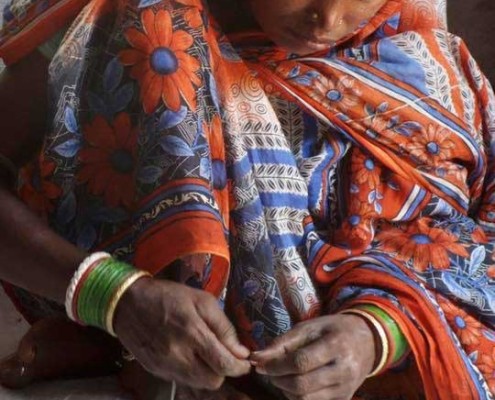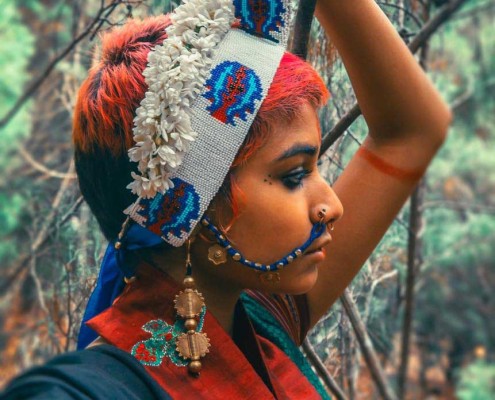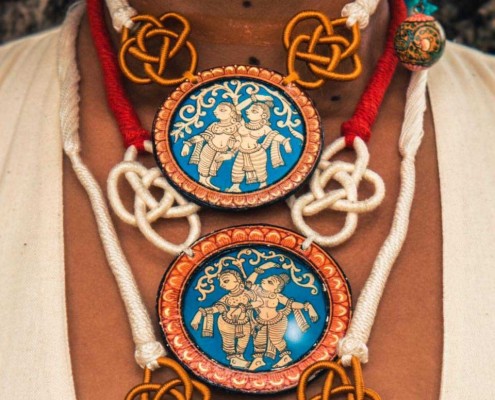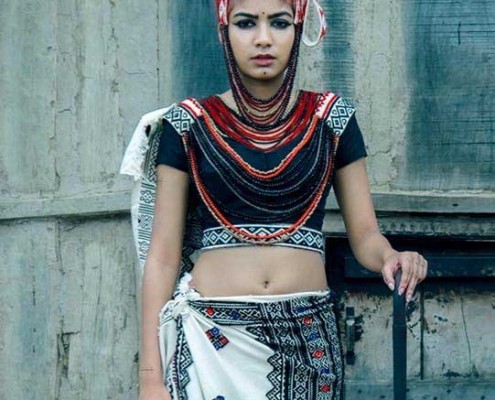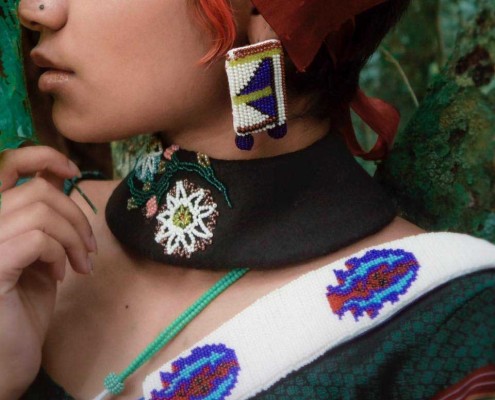CRAFTEPRENEUR an exhibition of contemporary craft
Participants
Arte-Alter
Arte-Alter is a fashion and lifestyle label which proudly promotes sustainability and social responsibility as its core design philosophy. This is reflected in their products and more importantly in the design and development process.
Arte-Alter products present fabrics made out of Azo-free and natural dyed yarns. The yarns used are all natural like Khadi, cotton, silk & linen. These are biodegradable, breathable, soft, durable and can be produced organically.
Arte-Alter products are designed by Ambrish Kumar Jha and Priyangsu Manji
Commitment to Kashmir (CtoK)
CtoK is supporting a new generation of craftpersons in Kashmir to become independent and sustainable craft entrepreneurs. With many artisans losing hope in the crafts, owing to the constant unrest in Kashmir valley, and taking to other sources of income to make a living, CtoK stepped in as an enabler of change in the times of distress. And so began a journey of hope, trust, respect and empowerment. A journey to revive the once flourishing craft sector by infusing it with new skills, technology, designs & market which will put the craft sector back on track.
CRO Ikat
Weaver 1- Chittranjan Patra (CRO)
His USP: twisting traditional motifs and making them contemporary
Chittranjan was twelve when he lost his father. His mother brought him and two of his siblings up. His father was known in the village for his bandha skills and he used to ask Chittaranjan to focus on the studies rather than engaging in the craft because there wasn’t enough money in the craft. Chittranjan learnt tying (bandha) to financially support his family and along side this he completed ITI training post which he joined a spinning mill manufacturing company in Gujarat. Chittranjan is twenty two years old and has worked in five different states. Chittranjan had lost hope in the craft after and recknoed with his father’s advise that there wasn’t enough money in the craft. “I returned back to craft after Tata Trusts opened their office here”, says Chittranjan.
Weaver 2- Akula Charan Nandi (Triratna Handloom Kraft)
His USP: Quality weaving with a mix of different colour combinations
Akula learnt how to weave from his mother. When he was eight his father, also a weaver, passed away. He has five sisters and a brother. His mother took complete responsibility of the family. After his father died his mother married off two of her daughters and also supported Akula’s education and his brothers. After 10th standard he started to weave and continued with his education along side. In 1995 he completed his graduation and planned to join blind school as a teacher. To his misfourtune he couldn’t get the position because the government official was paid off and the position went to someone else. In 1999, his house caught fire and he ended up loosing Mahajan’s loom and products. Admist all these ups and downs Akula now runs his own business and has 12 looms for his production.
Weaver 3- Ditee Krishna Debeta (Bandha Dori)
His USP: Intricate bandha
Ditee has three siblings, two of his sisters and his brother are married. He and his brother are carrying on the family legacy and is a bandha (tying) designer. Ditee’s father is also a bandha designer and is known for his bandha tying skills. His father has been awarded with State Handloom Award and National merit awarded by Ministry of textiles. His mother also does bandha and is a weaver as well. Ditee did his diploma in textile technology post which he went on to work as a Quality Assistant in Divya Spinning Mill in Tirupur, Tamil Nadu. Ditee worked for a total of three and a half years, partly in Tamil Nadu and partly in Gujarat. He returned to his craft in April, 2019.
Ekmit
Ekmit promotes handloom and handcrafted products. Surface textures and construction is the USP of Ekmit. Detailing in the products and zero wastage are other highlights.
Indian Tale
Indian Tale is a quest for the Indian contemporary, rooted in its tradition, yet global in its charm. ‘Contemporary Revival’ as a design expression lies at the spirit of every creation. The primary focus of Indian Tale is to revive the age-old regional art of Dabu and block printing making it available to a larger audience. Bold lines, dots, chevrons, ogee patterns, squares and many more combination of blocks are used together taking inspiration from tattoos of the tribals.
Indigene
Indigene is a conscious clothing label. Indigene’s design philosophy celebrates timeless fashion not driven by trends and traditional, sustainable production processes. Quality is vital to the brand; fabric, fit and finish, crucial to the handcrafted Indigene experience. An organically growing label, Indigene works closely with skilled artisans and local communities (trained) for production.
Indigene products are designed by Ruchi Tripathi, Jaya Bhatt,Textile design graduates from NIFT, New Delhi
Kadam Haat
Kadam Haat, a social enterprise aims at promoting handmade products made by rural artisans with eco-friendly materials and natural fibers that are locally sourced, traditional and perennial in nature. Trained by Kadam NGO, Kadam Haat products are Craft Mark Certified in Sabaii Grass, Bamboo, Coconut, Sitalpati and Moonj Grass. Kadam Haat is also a member of the Fair Trade Forum of India.
Payal Nath is the designer, founder and president of Kadam Haat
Maru Craft
Weaving and working with handlooms is Maru Craft’s tradition. Design experiments are done with different types of yarn like Merino wool, fine cotton, kala cotton, silk etc. Maru craft creates its own extra weft designs for their products. All the products are handmade on handloom. Natural, Azo free dyeing are used.
Maru Craft is designed by Vankar Meghji Harji, National Award Winner in 1996
Minimal Indian
Handmade, hand painted tableware & hand block printed home textiles are Minimal Indian’s ouvre. Each design is first drawn on a paper, hand painted. When the basic design is ready, it is transferred on ceramic bisque pieces, and then hand painted with rigger brush using lead free under glazes. For textiles, the same motifs are carved out on sheesham wood to create the original blocks and then printed for Minimal Indian’s home collection.
Adrita Sarkar is the designer of Minimal Indian
Morii Design
The idea of Morii was conceived in early March 2019, after working with Rajeev Sethi on a World Bank funded the project – Jiyo! After working with kalamkari and sujni clusters for Jiyo Morii’s designer moved to Gandhinagar and started a studio to experiment with natural dyes and hand painting. Morii design work also involves creation of embroidery clusters and conducting workshops in Kutch villages to develop the craft.
Brinda Dudhat, is the founder/designer of Morii Design
Pallav Chaudhary Textiles
The label has been involved in the development of resist dyeing techniques like shibori and bandhani by using unconventional tools and materials focusing on making the craft process easier, faster and precise, still maintaining its nature of randomness. Origami, with its folding techniques has been used to create beautiful patterns in resist dyeing.
Designer is Pallav Chaudhary
Pulp Factory
Pulp factory started in 2010 questioning the potential of paper as an alternative material to bring it into mainstream furniture and to study the stagnancy of papier machie as a craft. The brand remodels and transforms waste paper and post production fashion waste into 100 % biodegradable furniture.
‘Pick from Pulp’ is an initiative to continue the legacy of Indian textiles using an alternative material. The paper yarn is made from post production waste fabric, which is up-cycled in paper by local craftsmen and woven into fabrics by master weavers.
Pulp Factory is run by Spriha Chokhani & Bharat Chokhani
RangSutra Crafts
RangSutra Crafts is a community-owned company with 2000 shareholders from small rural communities across India, 80% of whom are women. The mission is to revive Indian craft heritage sustainability and the aim to empower artisans with the tools and knowledge they have inherited, ultimately allowing them to take ownership of their livelihood.
RangSutra Crafts believes that the country’s artisanal heritage has not only been passed down, but has been adapted through generations to suit modern times. This is the brand inspiration to create contemporary lifestyle products using the materials and methods that have been present throughout our history.
Rangsutra Crafts products are designed by Manjari
Rias Jaipur
Rias Jaipur’s collection comprises of Khadi. Apart from being eco friendly, this hand spun fabric is great for Indian weather – helps the body remain cool in summer and Warm in winter. They also work with the age old mud resist block printing technique of dabu.
This label is by Arshia and Avishek
Priyadarshini Rao
The brand, began in the year 1996 with the idea of amalgamating what is considered luxury pret with the work of textile artisans. The brand aligns weaving and printing techniques that are indigenous to India. Priyadarshini’s areas of work include weavers from Benaras and the Ajrakh printers of Kutch. Deep indigo, rusts, rich reds, endless blacks make for an intense colour palette and help create contemporary silhouettes of fusion wear and dresses, tunics, tops and trousers. Accessories like lace, beads and tissue are used to make the garments look appealing.
The Designer is Priyadarshini Rao
Tessera
Tessera is a channel for creative expression and design, offering home accents, serve ware and jewelry which are multi-functional, interactive, have a unique form and are easy to use. Along with wood, natural materials like stone, metal, resin and terrazzo are used. Each product is a collectible and bridges functionality and art. The art jewelry segment has a Fossil Collection with hand-picked semi-precious stones drawing inspiration from Bauhaus elements and nature, all in 24 carat gold-plated brass.
Tessera is designed by Jemika Parikh
Beehive India
The Beehive India works with prevalent heritage crafts like Mysore wood Inlay, comb making craft by developing newer motifs and forms, it also works with Chennapatna lacquerware, wood inlay of Hoshiarpur, stone inlay of Agra. While using heritage craft techniques the brand gives a contemporary craft feel to the products, incorporating the same traditional craft techniques. Most of their motifs are nature inspired e.g. leaf, chevron, tiger pattern or inspired from heritage monuments like Qutub Minar, Taj Mahal, etc.
The Beehive India products are designed by Pankaj Narain, a furniture design graduate from NID
The Jewelry Project by Deepti Sudhindra
The Jewelry Project’s jewelry moves beyond just being an ornament and is crafted with an understanding of the larger principles of design – what may be defined in recent times as ‘slow fashion’. The design endeavour is to retain a happy balance in the creation of bespoke jewelry for retail and custom craft pieces, heirlooms and gift stories for clients.
Craft techniques of South Indian temple jewelry, Mughal kundan, Karimnagar filigree, engraving, embossing, texturing, bead knotting are all used in a contemporary context in their work, creating a neo Indian grammar of ornaments in Indian jewelry design.
Designer is Deepti Sudhindra
The Plavate
Traditional weaving techniques are the canvas on which Plavate uses its minimalist design ideas to create an amalgamation of the old and the new. For example, traditional methods of weaving, hand-done embroidery or block printing receives a new lease of life when used with modern aesthetics for a modern and conscious audience.
Designer is Meenu Tiwari
Then & Now
Then & Now is a craft sustainability project. “Then” was how the craft used to be and “Now” represents how the craft can be adapted, by educating the consumer, designing exclusive products and making them aware of the fascinating heritage as well as ensuring the craftsman can keep pace with the ever changing times and demands of globalised markets. Then & Now brings to you an attractive range of home accessories. All the products are hand painted and hand crafted using varied folk styles such as Mithila from Madhubani in Bihar, Gond by the Pradhans and Bhills from the Gondwana belt of Madhya Pradesh, Pattachitra from Odisha, Warli from Maharashtra, Sanjhi from Mathura, Wood engravings and inlay from Pilakhwa, Sikki Grass from Bihar, Kashmir Paper Mache and Painted wooden toys of Benares & Odisha. Each piece is hand painted and carries the name and signature of the artisan. The products are craft mark certified, confirming – the craft process & Fair Trade practices.
Yesha Sant
Yesha Sant works with organic cotton which is grown without the use of synthetic pesticides & fertilisers, dyed using natural substances like iron scraps, madder roots and handwoven by the weavers of Kutch. Each step is handcrafted and the tiny imperfections that comes with hand embroidery, printing and weaving makes it a unique creation. The fabric gets handblock printed in Ajrakhpur, Sanghaner and Bagru, hand embroidered by the Rabari tribe women in Kutch and pattern making and stitching in their design studio in Bhopal.
Zola India
Zola India as a brand allows rural and folk artisans to express themselves through wearable art and is a voice that narrates their stories to the world. Zola India creates innovative designs with traditional rural craft that are dying or losing their relevance. Since it’s inception, Zola India has worked with Dhokra and Pattachitra from Orissa, Toda embroidery from Tamil Nadu, Wall Mural art and Aranmula mirror from Kerala, Leather puppetry and Lac Turnery from Andhra Pradesh, Bidri from Karnataka and Bead embroidery from Gujarat. Zola has worked with over 300 artisans from these states and has conducted over 20 Design intervention workshops across rural India.
Gina Joseph, is the Designer, Founder and Director of Zola India
For info on the show call CCI Office at 044-24341456

